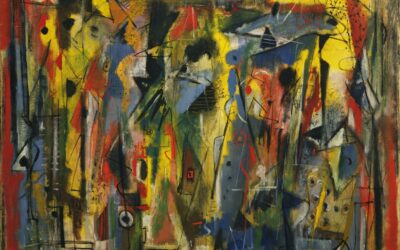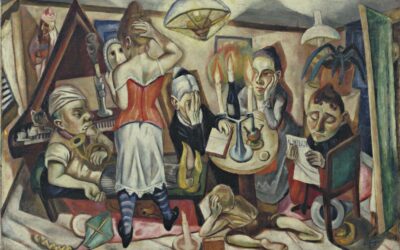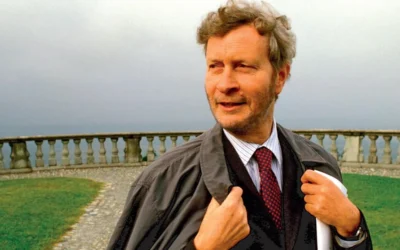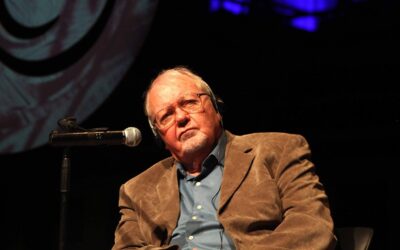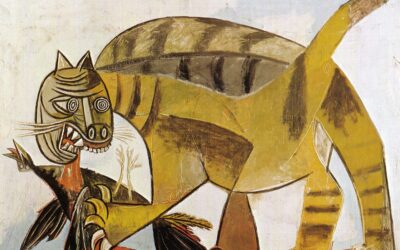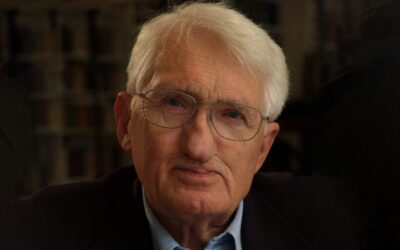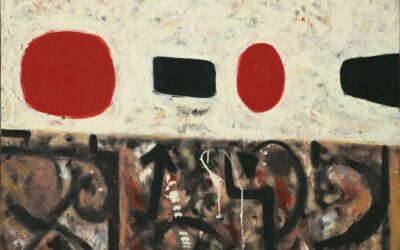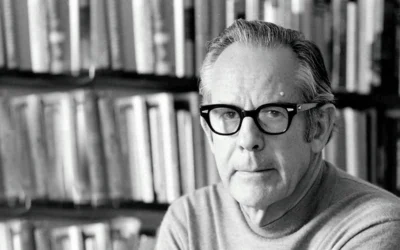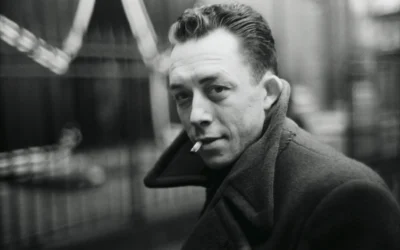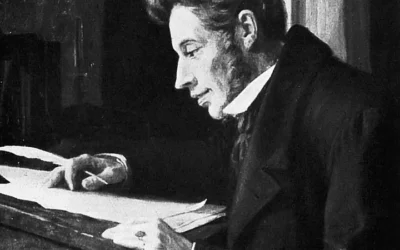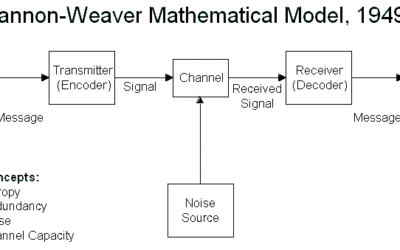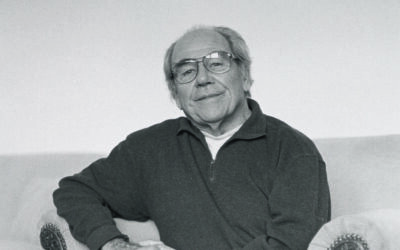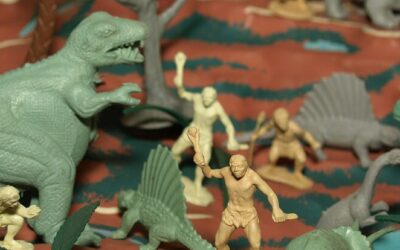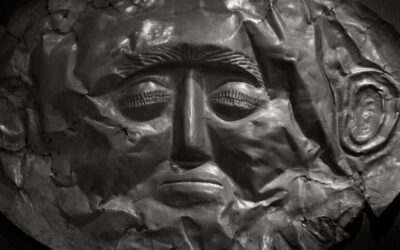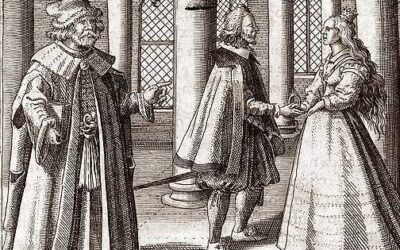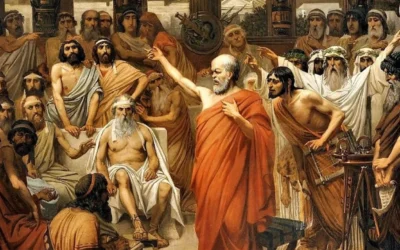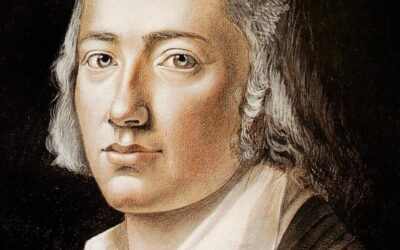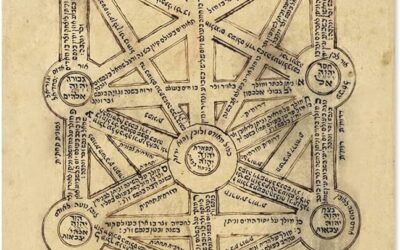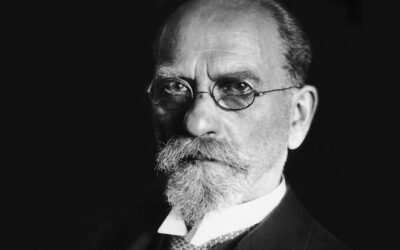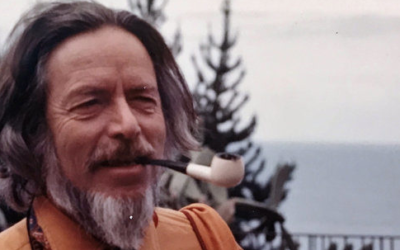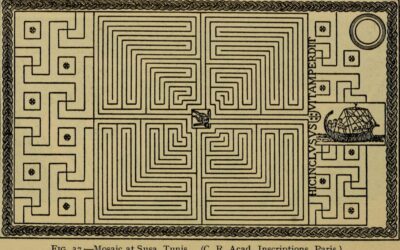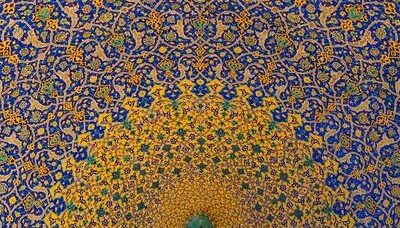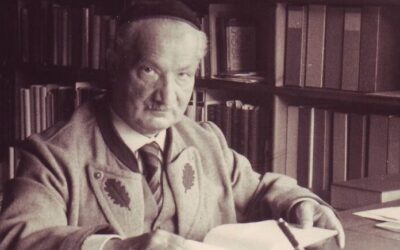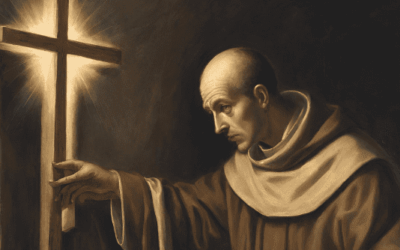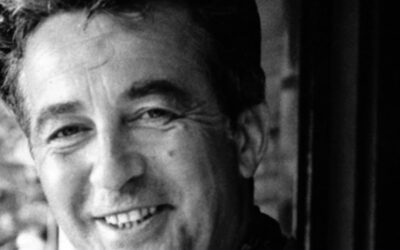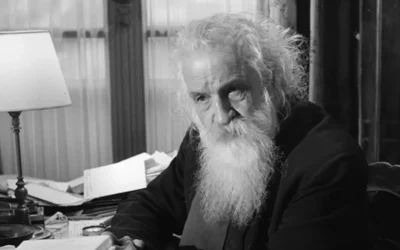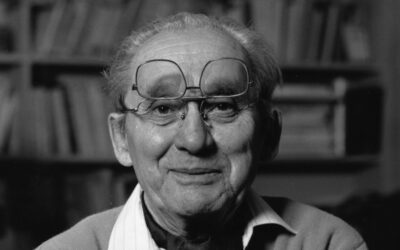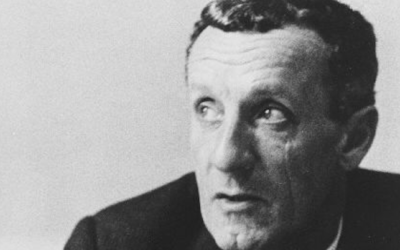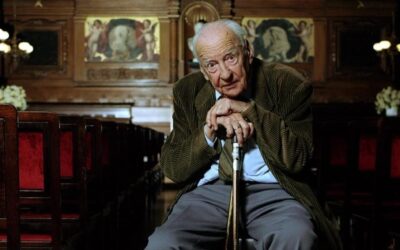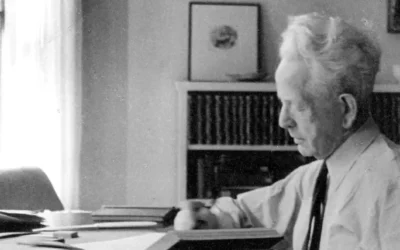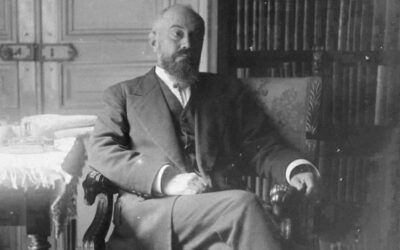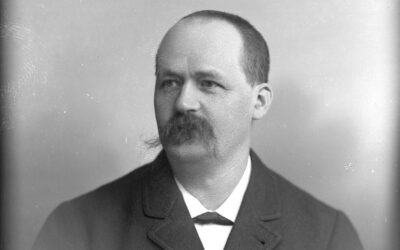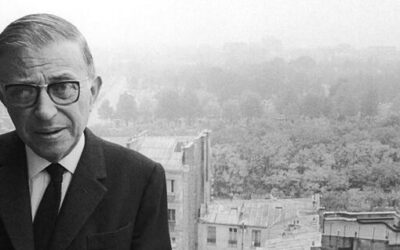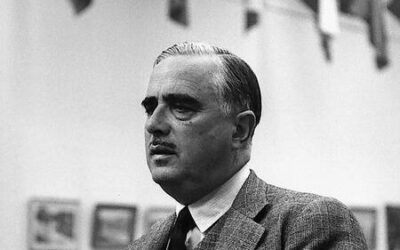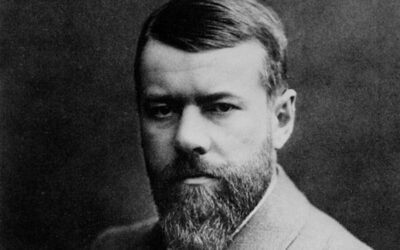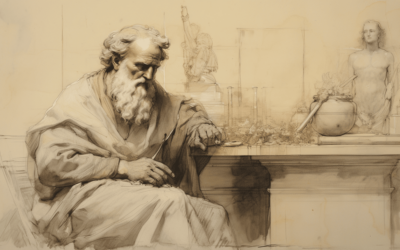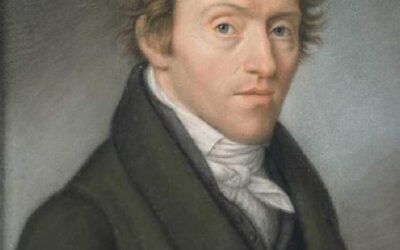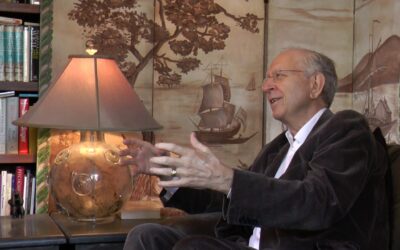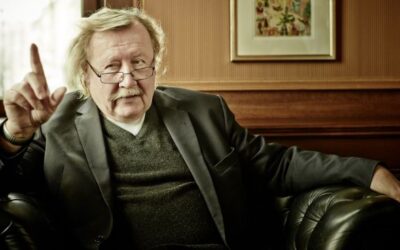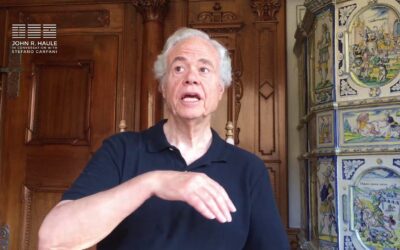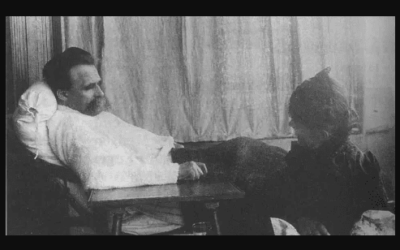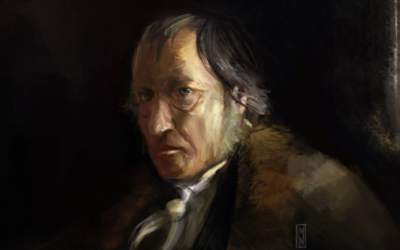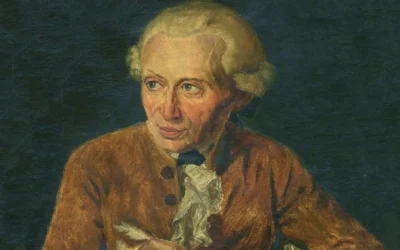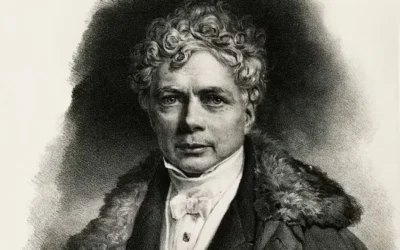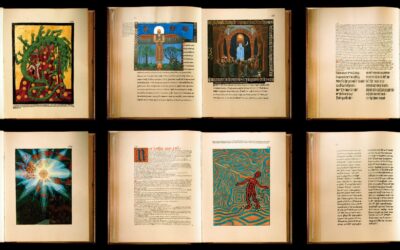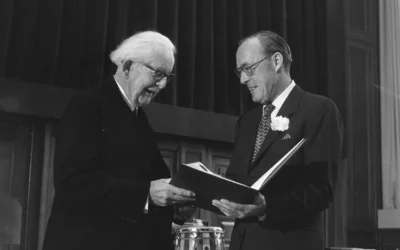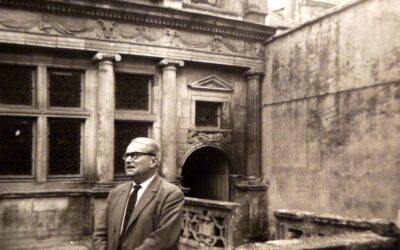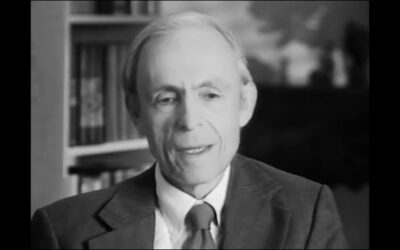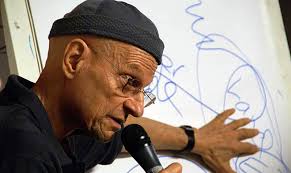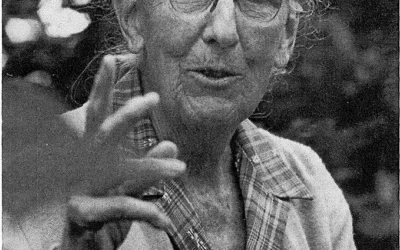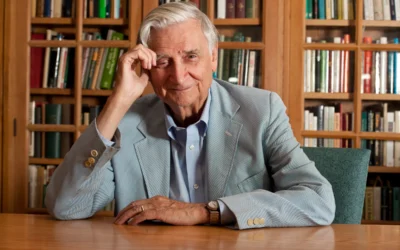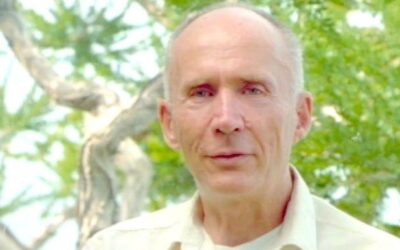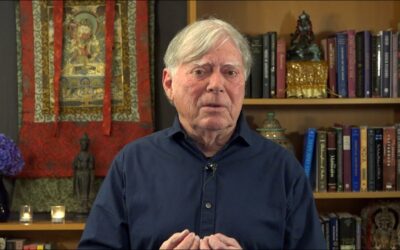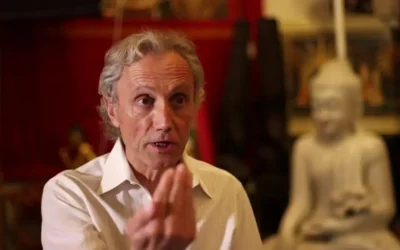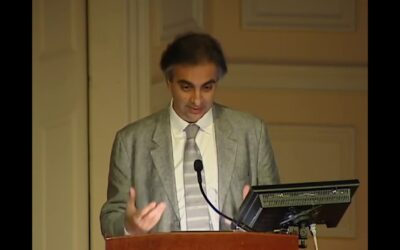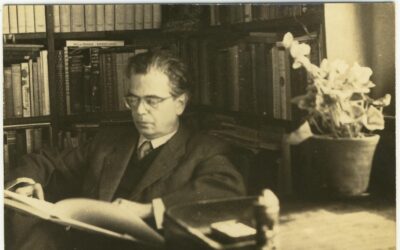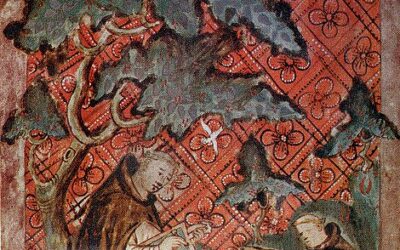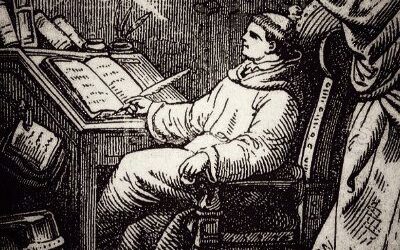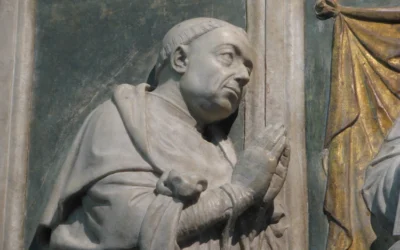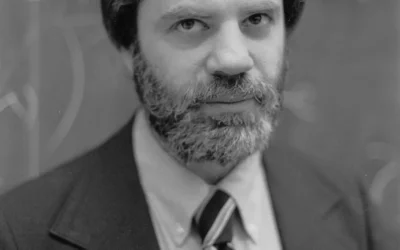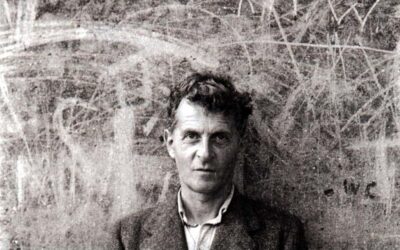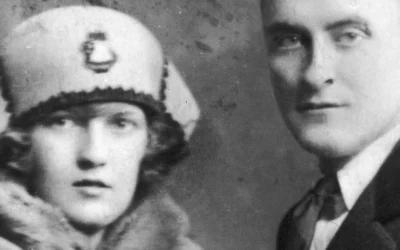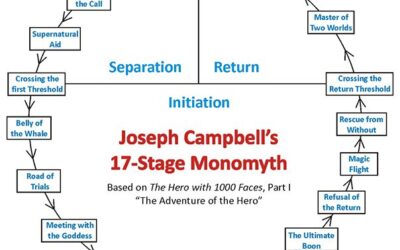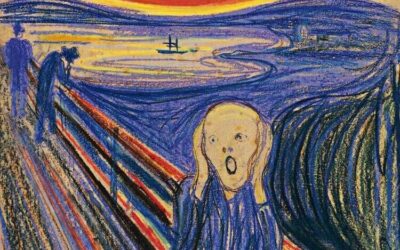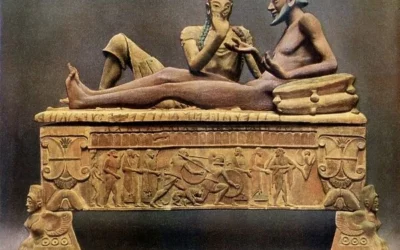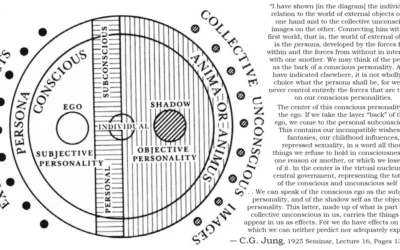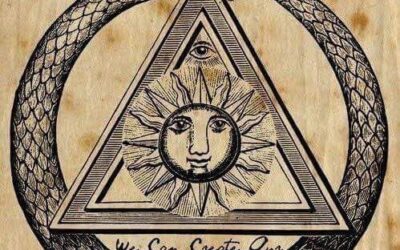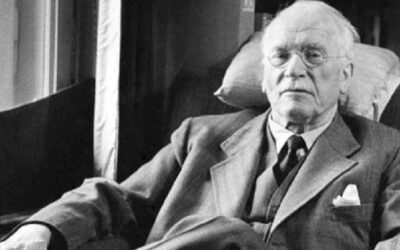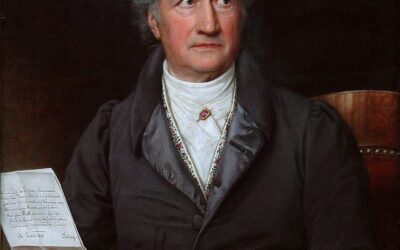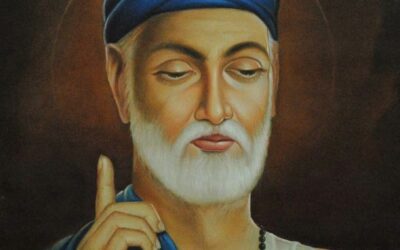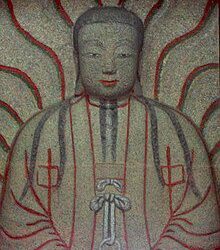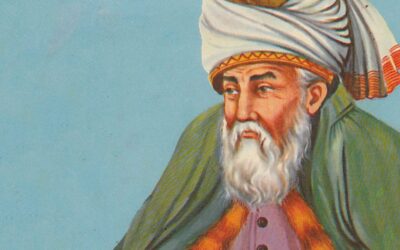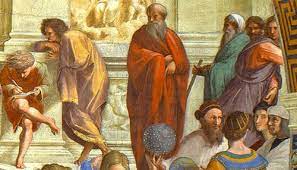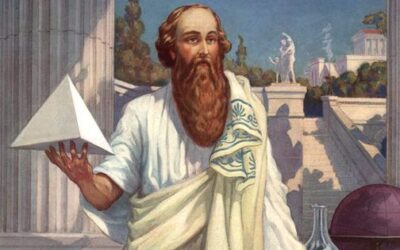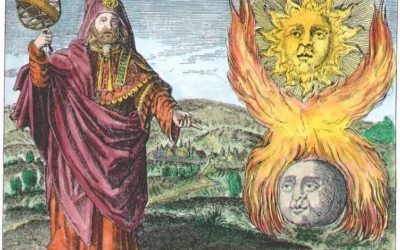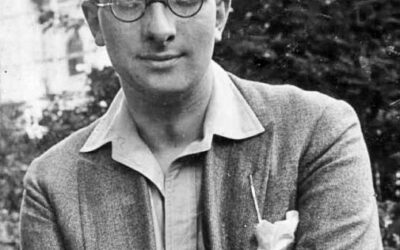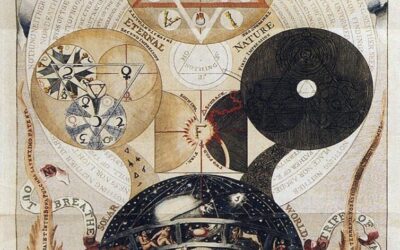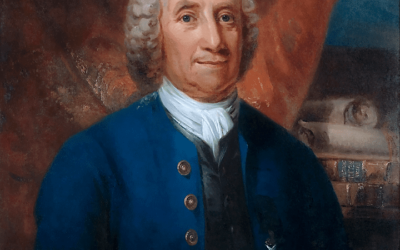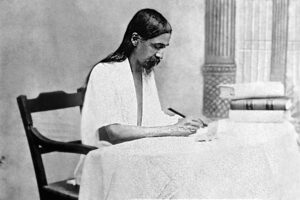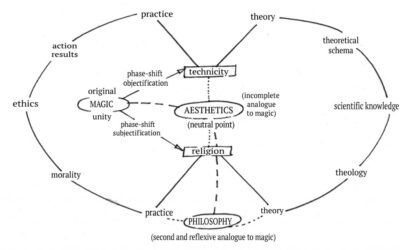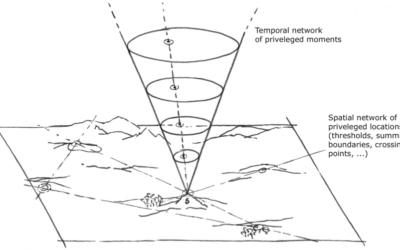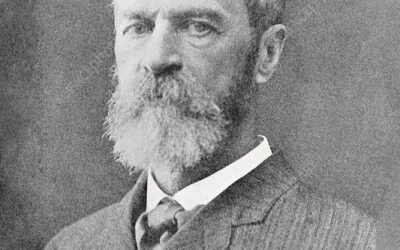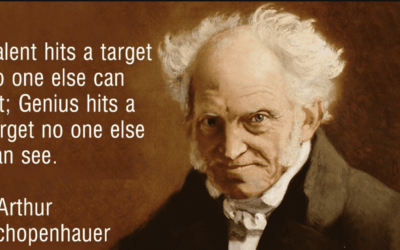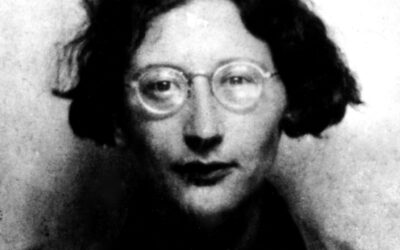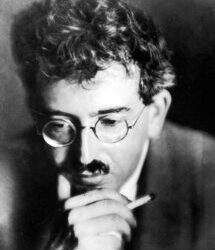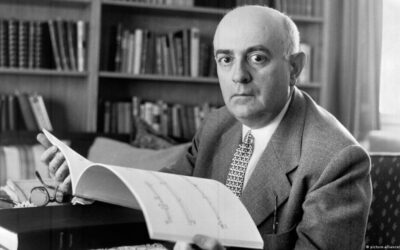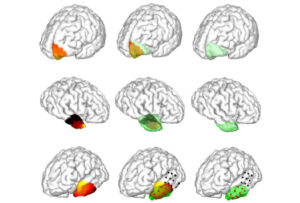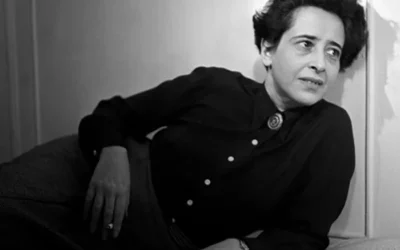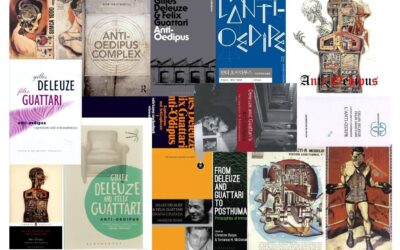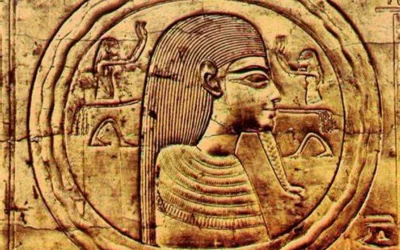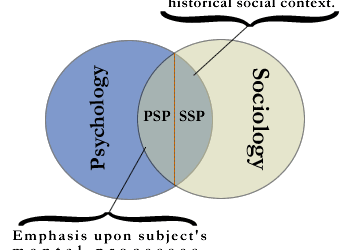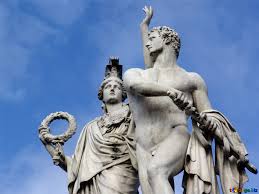The Limitations of Current Trauma Diagnosis Leading trauma experts Gabor Maté and Bessel van der Kolk have long argued that the DSM-5's approach to trauma diagnosis fails to capture the complexity of how trauma manifests in different memory systems and psychological processes. As van der Kolk notes in "The Body Keeps the Score," trauma isn't a singular experience but rather a constellation of disruptions across multiple domains of functioning. Similarly, Maté emphasizes in his work on trauma and addiction...
Nutrients and Micronutrition for Mental Health: Food as Medicine for Psychological Wellbeing
Integrating Nutritional Psychiatry with Therapeutic Practice in Birmingham
Welcome to Taproot Therapy Collective’s exploration of how nutrition and micronutrient status profoundly impact mental health, cognitive function, and therapeutic outcomes. As Birmingham’s leading integrative therapy practice, we recognize that nutritional deficiencies and imbalances often contribute to anxiety, depression, ADHD, and other mental health conditions, requiring comprehensive approaches that address both psychological symptoms and underlying nutritional factors.
Understanding Nutritional Psychiatry and Mental Health
Our Nutrients and Micronutrition for Mental Health blog category examines the growing field of nutritional psychiatry that explores how dietary choices, nutrient deficiencies, gut health, and metabolic factors significantly influence mood, cognition, and psychological resilience. This approach recognizes that mental health symptoms often reflect biochemical imbalances that can be addressed through targeted nutritional interventions alongside traditional therapeutic approaches.
This perspective builds on the comprehensive therapeutic philosophy outlined on our main services page, where we emphasize treating the whole person rather than isolated symptoms. Understanding how nutritional factors affect brain function enhances therapeutic effectiveness while providing clients with practical tools for supporting their mental health through dietary choices and supplementation strategies.
Essential Nutrients for Brain Function and Mental Health
Omega-3 Fatty Acids and Mood Regulation represent crucial building blocks for brain cell membranes and neurotransmitter function, with research from Harvard T.H. Chan School of Public Health demonstrating significant benefits for depression, anxiety, and cognitive function. EPA and DHA deficiencies correlate strongly with increased rates of depression and mood instability, while supplementation often provides therapeutic benefits comparable to medication for mild to moderate depression.
Understanding how modern diets often lack adequate omega-3 fatty acids due to processed food consumption and reduced fish intake helps explain rising rates of mental health conditions while informing therapeutic recommendations that include both dietary changes and targeted supplementation protocols.
B-Complex Vitamins and Nervous System Function play essential roles in neurotransmitter synthesis, energy metabolism, and stress response regulation. Deficiencies in B12, folate, B6, and thiamine frequently contribute to depression, anxiety, cognitive impairment, and irritability, particularly among individuals with digestive issues, dietary restrictions, or genetic polymorphisms affecting nutrient absorption.
Research from Mayo Clinic demonstrates how B-vitamin deficiencies can mimic psychiatric symptoms while supplementation often provides rapid improvement in mood and cognitive function when deficiencies are corrected through comprehensive testing and targeted intervention protocols.
Vitamin D and Seasonal Mood Disorders affects multiple aspects of brain function including neurotransmitter synthesis, immune regulation, and circadian rhythm maintenance. Deficiency correlates strongly with depression, seasonal affective disorder, and cognitive decline, while adequate levels support mood stability and cognitive performance.
Birmingham’s latitude and seasonal weather patterns create particular risks for vitamin D deficiency during winter months, requiring awareness of supplementation needs and regular testing to maintain optimal levels for mental health and overall wellbeing.
Magnesium and Stress Response Regulation serves crucial functions in nervous system regulation, sleep quality, and stress hormone metabolism. Deficiency contributes to anxiety, insomnia, muscle tension, and hypervigilance while adequate levels support calm nervous system function and restorative sleep patterns essential for mental health.
Gut Health and the Microbiome-Brain Connection
Digestive Health and Mental Wellbeing explores the bidirectional communication between gut and brain through the vagus nerve, immune system, and microbial metabolite production. Research from University of California San Francisco reveals how gut bacteria directly influence neurotransmitter production, mood regulation, and stress response patterns.
Understanding how digestive issues including leaky gut, SIBO, and dysbiosis contribute to anxiety, depression, and cognitive symptoms helps explain why many individuals experience mental health improvements when addressing underlying gut health imbalances through dietary interventions and targeted supplementation.
Probiotics and Psychobiotics represent beneficial bacteria that specifically influence mental health through neurotransmitter production, immune modulation, and stress hormone regulation. Certain strains show therapeutic benefits for anxiety, depression, and cognitive function while supporting overall digestive health and nutrient absorption.
Fermented Foods and Mental Health provide natural sources of beneficial bacteria while offering traditional dietary approaches to supporting gut-brain health through foods like kefir, kimchi, sauerkraut, and kombucha that enhance microbial diversity and digestive function.
Blood Sugar Regulation and Mental Health Stability
Glucose Metabolism and Mood Fluctuations examines how blood sugar instability contributes to anxiety, irritability, cognitive fog, and energy crashes that often worsen mental health symptoms. Understanding how refined carbohydrates, irregular eating patterns, and insulin resistance affect brain function helps explain why many individuals experience mood improvements through dietary stabilization.
Protein and Amino Acid Requirements for neurotransmitter synthesis require adequate intake of specific amino acids including tryptophan for serotonin production, tyrosine for dopamine synthesis, and GABA for nervous system calming. Protein deficiency or imbalanced amino acid ratios often contribute to mood disorders and cognitive symptoms.
Complex Carbohydrates and Serotonin Production support stable energy and neurotransmitter synthesis through slow glucose release and tryptophan transport enhancement. Understanding how carbohydrate timing and quality affect mood helps optimize dietary approaches for mental health support.
Inflammatory Factors and Mental Health
Anti-Inflammatory Nutrition and Depression addresses how chronic inflammation contributes to depression, anxiety, and cognitive decline through cytokine production and brain inflammation. Research from Stanford Medicine demonstrates how anti-inflammatory dietary patterns including Mediterranean and whole food approaches support mental health through inflammation reduction.
Food Sensitivities and Mental Health Symptoms examines how gluten sensitivity, dairy intolerance, and other food reactions can trigger inflammation and mental health symptoms including brain fog, anxiety, and mood instability. Elimination diets and food sensitivity testing often reveal dietary triggers that significantly impact psychological wellbeing.
Antioxidants and Neuroprotection through foods rich in polyphenols, vitamins C and E, and other protective compounds support brain health by reducing oxidative stress and supporting cellular repair mechanisms essential for optimal mental health and cognitive function.
Birmingham Applications of Nutritional Mental Health
Living in Birmingham, Alabama, creates unique opportunities and challenges for nutritional mental health including access to fresh produce, regional food traditions, and cultural dietary patterns that influence mental health outcomes. Understanding how Southern cooking traditions can be adapted for optimal brain health while honoring cultural food practices enhances therapeutic effectiveness.
The city’s growing health food movement including farmers markets, health food stores, and nutrition-focused restaurants provides resources for implementing nutritional mental health strategies while local healthcare providers increasingly recognize nutritional factors in mental health treatment.
Birmingham’s diverse population creates opportunities for exploring how different cultural dietary traditions support mental health while addressing barriers to healthy eating including food access, economic factors, and cultural preferences that affect nutritional intervention success.
Integration with Therapeutic Practice
Nutritional mental health approaches integrate effectively with evidence-based therapeutic modalities detailed in our psychology and research section by addressing biological factors that influence therapy outcomes while providing practical tools for supporting psychological wellness between sessions.
Understanding how nutritional deficiencies affect neurotransmitter function, sleep quality, and stress response helps therapists recognize when nutritional factors may be contributing to treatment resistance or slow progress while informing comprehensive approaches that address both psychological and biological factors affecting mental health.
Trauma therapy benefits from nutritional support that addresses how stress depletes specific nutrients while supporting nervous system regulation and recovery through targeted nutritional interventions that enhance therapeutic effectiveness and resilience building.
Research-Based Insights from Leading Institutions
Contemporary research from Cleveland Clinic’s Center for Functional Medicine, University of Melbourne Food and Mood Centre, and Columbia University Psychiatry continues validating nutritional approaches to mental health while expanding understanding of specific nutrient-symptom relationships and effective intervention protocols.
Studies consistently demonstrate that nutritional interventions can provide therapeutic benefits comparable to medication for many mental health conditions while offering additional benefits for physical health, energy levels, and overall wellbeing that support comprehensive recovery and resilience.
Practical Applications and Assessment
Nutritional Assessment and Testing helps identify specific deficiencies and imbalances through comprehensive laboratory testing including nutrient levels, inflammatory markers, food sensitivities, and digestive function markers that inform targeted intervention strategies.
Personalized Nutrition Planning develops individualized dietary approaches based on genetic factors, health history, lifestyle considerations, and therapeutic goals while honoring cultural preferences and practical constraints that affect implementation success.
Supplement Protocols and Quality Considerations provide guidance for selecting high-quality nutritional supplements when dietary approaches alone are insufficient while understanding timing, interactions, and monitoring requirements for safe and effective supplementation.
Connect with Our Nutritional Mental Health Community
For deeper exploration of nutritional psychiatry and integrative mental health approaches, check out more on the Discover + Heal + Grow Taproot Therapy Collective blog and podcast where we regularly feature nutritional psychiatrists, functional medicine practitioners, and researchers exploring food-mood connections.
Subscribe to our YouTube channel for nutritional mental health education and practical implementation strategies, listen to our podcast for expert interviews on nutritional psychiatry and integrative approaches, follow us on Instagram for daily nutrition and mental health tips, connect on LinkedIn for professional resources on nutritional mental health, find us on Google Maps for integrative mental health services, and join our Reddit community for discussions on nutrition, mental health, and holistic wellness approaches.
Featured Article Categories
Our Nutrients and Micronutrition for Mental Health blog includes Essential Nutrients exploring specific vitamins and minerals crucial for brain function, Gut-Brain Connection examining digestive health and mental wellbeing relationships, Blood Sugar and Mood addressing glucose regulation and mental health stability, Anti-Inflammatory Nutrition covering dietary approaches to reducing brain inflammation, Food Sensitivities and Mental Health exploring dietary triggers for psychological symptoms, Supplement Protocols providing guidance for targeted nutritional interventions, Birmingham Food Culture examining regional dietary patterns and mental health impacts, and Research and Science covering latest findings in nutritional psychiatry and clinical applications.
What You’ll Find in This Blog Category
This blog category features evidence-based articles on how nutrition affects mental health, practical guides for implementing dietary changes that support psychological wellbeing, research summaries on nutritional psychiatry findings, and educational content helping readers understand the complex relationships between food, brain function, and emotional health.
What You’ll Find in These Articles
Our nutritional mental health content explores the fascinating connections between what we eat and how we feel. From understanding why omega-3 deficiency might worsen depression to discovering how gut bacteria influence anxiety, these articles translate complex research into practical insights you can actually use.
Contact Taproot Therapy Collective: 📍 2025 Shady Crest Dr. Suite 203, Hoover, AL 35216
📞 (205) 598-6471
🌐 www.GetTherapyBirmingham.com
🎧 Podcast: gettherapybirmingham.podbean.com
Discover + Heal + Grow with Taproot Therapy Collective – Birmingham’s resource for understanding how nutrition affects mental health and wellbeing.
Reclaiming the Soul of Psychology: Recentering the Study of Consciousness in Psychotherapy
Brainspotting in Alabama: Revolutionary Trauma Therapy for Deep Healing, Jungian Therapy and Depth Psychology, Phenomenology and Existential Psychology, Philosophy for Therapists, Psychology Topics and Articles
Psychology, as a field, stands at a critical juncture. Over the past few decades, the focus has shifted away from the fundamental nature of human consciousness and towards a more mechanistic, symptom-focused approach to mental health. Manualized therapies, diagnostic checklists, and a preoccupation with "evidence-based" practices have come to dominate the landscape, threatening to reduce the rich tapestry of human experience to a set of computerized algorithms. As a graduate student, I remember feeling a deep...
Metamodernism: Exploring Multiple Perspectives and Conceptualizations
Metamodernism and Deconstruction, Philosophy for Therapists
What is Metamodernism? The concept of metamodernism has emerged as a paradigm to describe the cultural, philosophical, and therapeutic landscape after postmodernism. While there is no single agreed-upon definition, metamodernism broadly refers to a structure of feeling and mode of discourse that oscillates between aspects of modernism and postmodernism. It seeks to reincorporate depth, affect, spirituality, and grand narratives after the deconstructions of the postmodern, while retaining postmodernism's insights...
Illuminating the Mind: Lessons Psychology Can Learn from Anthropology and Philosophy
Anthropology and Evolutionary Psychology for Therapy, Phenomenology and Existential Psychology, Philosophy for Therapists, Ritual and Initiation, Spirituality and The Transcendent Function in Psychotherapy
Why Does Psychology Ignore Philosophy and Anthropology? Time moves in one direction, memory in another.<br> We are that strange species that constructs artifacts intended to counter the natural flow of forgetting. - William Gibson, "Dead Man Sings" Psychology, as the scientific study of the mind and behavior, has made tremendous strides in understanding the human experience. However, two other disciplines - anthropology and philosophy - offer profound insights that can enrich and expand psychological...
Madness or Genius? Schopenhauer’s Prescient Insights into Memory, Trauma and the Irrational Mind
Phenomenology and Existential Psychology, Understanding Neurodivergence and Neurodiversity in Therapy
The 19th century German philosopher Arthur Schopenhauer is renowned for his profound and often controversial views on the nature of reality, ethics, aesthetics, and the human condition. Among his most intriguing and influential ideas are his reflections on the phenomena of madness and genius, which he saw as two sides of the same coin - deviations from ordinary cognition that reveal deeper truths about the mind and the world. Schopenhauer's perspective on these topics was deeply rooted in his overarching...
Lenses of Inquiry: How Philosophy Can Inform Psychology
Jungian Therapy and Depth Psychology, Phenomenology and Existential Psychology, Philosophy for Therapists
How to Use Philosophy in Existential Therapy Philosophy and psychology have long been intertwined, both seeking to understand the complexities of the human mind and experience. By applying philosophical frameworks as lenses of inquiry, we can gain deeper insights into psychological phenomena and develop more effective therapeutic practices. Let's explore how approaches like phenomenology, epistemology, existentialism, and others offer valuable perspectives for psychology. Phenomenology: Exploring Lived Experience...
What is Emotion?
Brainspotting in Alabama: Revolutionary Trauma Therapy for Deep Healing, Jungian Therapy and Depth Psychology, Phenomenology and Existential Psychology, Philosophy for Therapists, Psychology, Psychology Topics and Articles
Emotion: A Conjunction of Inner and Outer Spheres James Hillman's book Emotion: A Comprehensive Phenomenology of Theories and Models presents a philosophical and psychological exploration of emotions, investigating them not as mere physiological responses but as integral aspects of human experience and soul life (Hillman, 1960). Hillman critiques the way traditional psychology and psychiatry have often treated emotions in mechanistic, reductive ways, urging instead a deeper understanding of emotions as vital...
Cults, Propaganda and Lies: Exploring Inner and Outer Manipulation
Mental Health and Psychotherapy Resources in Alabama, Philosophy for Therapists, Psychology, Recovering from Abuse
Why do People Join Cults and Believe Propaganda? The Internet and the Illusion of Truth When the internet first emerged, many believed it would solve our political problems by providing universal access to truth. I remember these days myself and there was a techno-libertarian-utopianism that pervaded the early internet. The idea was that, with the ability to bypass traditional gatekeepers like the government and the news media, people would be able to find and spread accurate information, leading to a more...
Is Metamodern Meme Cultural Making us Speak Literally and Symbolically at the Same Time
Metamodernism and Deconstruction, Philosophy for Therapists, Psychology of Media and Culture, Psychology of Modernism Post Modernism and the Meta Modern
The Metamodern Linguistic Turn What is Metamodernism? Metamodernism is an emerging cultural paradigm and sensibility that transcends the dichotomies of modernism and postmodernism. It seeks a synthesis of the universal aspirations and grand narratives of modernism with the relativism, irony and deconstruction of postmodernism. As we progress further into the 21st century, it becomes increasingly clear that the cultural frameworks of the past are no longer adequate for making sense of our rapidly shifting world....
Weak Thought, Strong Therapy: Gianni Vattimo and the Metamodern Turn
Metamodernism and Deconstruction, Philosophy for Therapists, Psychology, Psychology of Modernism Post Modernism and the Meta Modern
Explore the relevance of metamodernism, spirituality, and depth psychology for understanding culture, trauma, and the practice of psychotherapy in the modern world. Discover insights from Carl Jung’s transcendent function and contemporary thinkers.
Fredric Jameson: The Metamodern for Therapy
Metamodernism and Deconstruction, Phenomenology and Existential Psychology, Philosophy for Therapists, Psychotherapy Biographies: Historical Figures in the History of Psychology
Metamodernism, Post-Spirituality, and Depth Psychology: Navigating Trauma in the Contemporary Era In our increasingly complex and fragmented world, the need for frameworks to understand the psyche, culture, and the spiritual dimensions of human existence has never been greater. Two thinkers who offer profound insights into these realms are cultural theorist Fredric Jameson and depth psychologist Carl Jung. By tracing the evolution of culture through the stages of modernism, postmodernism, and metamodernism, and...
Metamodernism and the Future of Psychotherapy: Integrating Modernity, Postmodernity and the Therapeutic Encounter
Metamodernism and Deconstruction, Phenomenology and Existential Psychology, Philosophy for Therapists
Who are Timotheus Vermeulen and Robin van den Akker? In their seminal 2010 essay "Notes on Metamodernism", cultural theorists Timotheus Vermeulen and Robin van den Akker outlined an emerging cultural paradigm they dubbed "metamodernism". Oscillating between the opposing poles of modernist sincerity and postmodern irony, the metamodern sensibility attempts to transcend the aporia of the postmodern era without regressing to the naivete of the modern. This article will explore the implications of Vermeulen and van...
Jürgen Habermas and the Transformation of Psychotherapy: Towards a Dialogical and Emancipatory Practice
Metamodernism and Deconstruction, Phenomenology and Existential Psychology, Philosophy for Therapists
Who is Jürgen Habermas? Jürgen Habermas (1929-) is one of the most influential philosophers and social theorists of the late 20th and early 21st centuries. As the leading figure of the "second generation" of the Frankfurt School, Habermas has made groundbreaking contributions to our understanding of communicative rationality, discourse ethics, democratic deliberation, and the public sphere. While not primarily a psychologist, Habermas's ideas have profound implications for depth psychology and contemporary...
The Existential Psychology of Viktor Frankl:
Anthropology and Evolutionary Psychology for Therapy, History of Psychotherapy, Phenomenology and Existential Psychology, Philosophy for Therapists, Psychotherapy Biographies: Historical Figures in the History of Psychology
Finding Meaning in the Face of Suffering "Everything can be taken from a man but one thing: the last of the human freedoms — to choose one's attitude in any given set of circumstances, to choose one's own way." Viktor E. Frankl, Man's Search for Meaning Viktor Emil Frankl (1905-1997) was an Austrian psychiatrist, neurologist, philosopher, author, and Holocaust survivor who founded the school of logotherapy, a meaning-centered approach to psychotherapy. His harrowing experiences in Nazi concentration camps shaped...
Existentialism and Indigenous Worldviews: Finding Purpose in a Complex World
Jungian Therapy and Depth Psychology, Phenomenology and Existential Psychology, Philosophy for Therapists
The Search for Meaning in Existentialism and Indigenous Thought Existentialist philosophy and indigenous worldviews offer contrasting but potentially complementary perspectives on one of life's biggest questions: What is the meaning and purpose of human existence? While existentialists like Jean-Paul Sartre and Albert Camus grappled with the apparent absurdity of life, arguing that individuals must create their own sense of purpose, many indigenous traditions see the individual as embedded in a deeply meaningful...
Exploring the Contributions of Rollo May to Existential Psychotherapy
Philosophy for Therapists, Psychology, Psychotherapy Biographies: Historical Figures in the History of Psychology
Exploring the Contributions of Rollo May to Existential Psychotherapy Who was Rollo May Rollo May (1909-1994) was an influential American existential psychologist and psychotherapist. He played a key role in introducing existential psychology to the United States and in shaping the humanistic psychology movement of the mid-20th century. May's work bridged the insights of European existential philosophy with the practical concerns of clinical psychology, offering a compelling vision of the human condition and the...
Exploring the Relevance of Albert Camus’ Ideas for Psychotherapy
Philosophy for Therapists, Psychotherapy Biographies: Historical Figures in the History of Psychology
Who was Albert Camus? Albert Camus (1913-1960) was a French philosopher, author, and journalist who is widely regarded as one of the most influential thinkers of the 20th century. His work explored the absurdity of the human condition, the search for meaning in a seemingly meaningless universe, and the challenge of living authentically in the face of life's contradictions. While not directly involved in psychology or psychotherapy, Camus' ideas have had a significant impact on existential and humanistic...
Exploring the Relevance of Søren Kierkegaard’s Ideas for Psychotherapy
Philosophy for Therapists, Psychotherapy Biographies: Historical Figures in the History of Psychology
Who was Søren Kierkegaard? Søren Kierkegaard (1813-1855) was a Danish philosopher, theologian, and author widely regarded as the first existentialist philosopher. His work explored the nature of human existence, emphasizing individuality, personal choice and commitment, and the struggle with anxiety and despair in the face of life's uncertainties. Kierkegaard's ideas profoundly influenced later existentialist thinkers as well as psychologists and psychotherapists grappling with the complexities of the human...
Claude Shannon and Warren Weaver: Architects of Information Theory
Philosophy for Therapists, Psychology of Film and TV, Psychology of Media and Culture, Psychotherapy Biographies: Historical Figures in the History of Psychology
I. What is the Shannon Weaver Model Claude Shannon (1916-2001) and Warren Weaver (1894-1978) were two American mathematicians and engineers whose collaborative work laid the foundation for modern information theory. Their groundbreaking research in the mid-20th century revolutionized our understanding of communication, paving the way for the digital age and profoundly influencing fields ranging from computer science and cryptography to linguistics and psychology. This paper explores the lives and ideas of Claude...
Jean Baudrillard: Philosopher of Hyperreality and Simulation
Phenomenology and Existential Psychology, Philosophy for Therapists, Psychotherapy Biographies: Historical Figures in the History of Psychology
Simulacra and Simulation "We are in a logic of simulation, which no longer has anything to do with a logic of facts and an order of reason. Simulation is characterized by a precession of the model, of all the models based on the merest fact - the models come first, their circulation, orbital like that of the bomb, constitutes the genuine magnetic field of the event. The facts no longer have a specific trajectory, they are born at the intersection of models, a single fact can be engendered by all the models at...
The Situationist International: Subversive Tricksters of Everyday Life
Philosophy for Therapists, Psychology, Psychology of Media and Culture
What were the Situationists International The Situationist International (SI) was a radical avant-garde movement that emerged in the 1950s and reached its peak of influence in the late 1960s, around the time of the May 1968 uprising in France. Founded on the idea of fusing art, politics, and everyday life into a revolutionary praxis, the SI sought to overthrow the alienating and oppressive structures of modern capitalist society. At the heart of their critique was the concept of the spectacle, developed by Guy...
The Psychology of Advertising
Philosophy for Therapists, Psychology, Psychology of Media and Culture
Advertising has long drawn upon psychology to influence consumers and shape their behavior. As documentary filmmaker Adam Curtis explores, some of the earliest uses of psychological theories in advertising and public relations can be traced back to Sigmund Freud's nephew Edward Bernays in the early 20th century. Bernays and the Application of Freudian Ideas Bernays was one of the first to apply Freudian ideas of the unconscious mind to advertising and public manipulation. In one famous case study, he helped the...
Existential Psychotherapy: The Life and Work of Irvin Yalom
History of Psychotherapy, Phenomenology and Existential Psychology, Philosophy for Therapists
1. Who is Irvin Yalom? Irvin D. Yalom (1931- ) is one of the most influential figures in existential psychotherapy. Over his long career, Yalom has not only made major contributions to existential theory and practice, but has also brought the insights of existential thought to a wide public audience through his many bestselling books. His work bridges the gap between the philosophical foundations of existentialism and the everyday concerns of psychotherapy, offering a deeply humane vision of the therapeutic...
Psychotherapy’s Feuding Founders
Evidence Based Practice and Research Psychology, History of Psychotherapy, Mental Health and Psychotherapy Resources in Alabama, Neuroscience and the Brain for Therapists, Phenomenology and Existential Psychology
Ego, Ideology, and the Battle for the Soul of the Profession From the outside, psychotherapy often appears to be a staid and sober enterprise – a science of the mind dedicated to the rational amelioration of human suffering. But a closer examination of the field's history reveals a far more tumultuous and fractious reality. Beneath the calm veneer of clinical respectability lies a roiling cauldron of clashing personalities, competing paradigms, and bitter doctrinal disputes. Far from a detached, objective...
Lessons on Acceptance from Irvin Yalom’s Existential Psychotherapy
Philosophy for Therapists, Psychology, Psychotherapy Biographies: Historical Figures in the History of Psychology
The Stages of Grief as Defelection from Existential Dread We all go through the stages of grief all of the time: The stages of grief - denial, anger, bargaining, depression, and acceptance - represent common emotional reactions to loss and change (Kübler-Ross & Kessler, 2005). However, they can also be seen as ways we deflect away from reality to pretend our interior emotional spaces can control external circumstances. In the depths of grief, we rage against what is, bargain for a different outcome, and sink...
The “Lost World” of Miyazaki’s Masterpiece
Interviews and Case Studies, Phenomenology and Existential Psychology, Psychology, Psychology of Buildings and Architecture, Psychology of Film and TV, Psychology of Media and Culture, Symbolism and Meaning in Psychotherapy
*This review contains spoilers for the film The Boy and the Heron What is The Boy and the Heron trying to tell us? To escape from this depressing situation, they often find themselves wishing they could live in a world of their own - a world they can say is truly theirs, a world unknown even to their parents. To young people, anime is something they incorporate into this private world. I often refer to this feeling as one yearning for a lost world. It's a sense that although you may currently be living in a world...
Was Freud Wrong About Sexuality?
History of Psychotherapy, Jungian Therapy and Depth Psychology, Models of Psychotherapy, Phenomenology and Existential Psychology, Psychotherapy Biographies: Historical Figures in the History of Psychology
Evolution, the Divided Brain, and the Complexity of the Human Psyche Sigmund Freud, the father of psychoanalysis, is famous (or perhaps infamous) for his controversial theories that placed sexuality at the very center of the human psyche. He argued that sexual instincts and impulses, emerging from the unconscious id, were the primary drivers of human behavior, motivation, personality development, and even mental illness. But was Freud wrong about the primacy of sexuality? Insights from evolutionary psychology,...
Antonio Damasio: Reuniting Mind, Body, and Emotion
Phenomenology and Existential Psychology, Psychology of Mystics, Gurus, and Spiritual Philosophers
Who is Antonio Damasio? Antonio Damasio is a pioneering neuroscientist, best-selling author, and professor of psychology, philosophy, and neurology at the University of Southern California, where he directs the Brain and Creativity Institute. His groundbreaking work challenges centuries of dualistic thinking about mind and body in Western culture, illuminating the deep connections between reason, emotion, and biological regulation. Damasio's books, including the seminal "Descartes' Error," have had a profound...
Cult Psychology of the Solar Temple
Phenomenology and Existential Psychology, Psychology of Conspiracy Theories, Recovering from Abuse
The Rise and Fall of the Order of the Solar Temple What was The Order of the Solar Temple The Order of the Solar Temple was a destructive cult that operated in the late 20th century, leaving a tragic legacy of mass suicides. Founded by Joseph Di Mambro and Luc Jouret, the cult blended elements of esotericism, New Age spirituality, and apocalyptic thinking to attract followers seeking meaning and transcendence. This essay will examine the origins, practices, and ultimate downfall of the Order of the Solar Temple...
Nietzsche’s Influence and Counter Transference on Carl Jung
Phenomenology and Existential Psychology, Philosophy for Therapists, Psychotherapy Biographies: Historical Figures in the History of Psychology
Nietzsche's Influence and Counter Transference on Carl Jung The relationship between Friedrich Nietzsche and Carl Jung was one of profound influence mixed with misunderstanding, fear, and divergence. Jung built upon Nietzsche's pioneering explorations of the hidden depths of the human psyche, yet also harbored deep concerns about following Nietzsche's path. A close examination reveals that Jung was both more indebted to and more conflicted about Nietzsche than he openly acknowledged. One curious episode that...
When Therapy Becomes Metaphysics:
Philosophy for Therapists, Psychology, Psychology of Mystics, Gurus, and Spiritual Philosophers
Examining the Philosophical Implications of Psychotherapy Models Psychotherapy, at its core, aims to alleviate mental distress, facilitate personal growth, and enhance well-being. Various therapeutic models, from psychoanalysis to cognitive-behavioral therapy, offer frameworks for understanding the human psyche and fostering positive change. However, when these models are extended beyond their clinical applications and taken to extremes, they can morph into all-encompassing metaphysical and ethical systems. The...
What would a Jungian Ethics Look Like?
Jungian Therapy and Depth Psychology, Philosophy for Therapists
What were Carl Jung's Ethics? The Moral Imperative of Individuation At the heart of Jung's approach to ethics is the idea of individuation as a moral imperative. Individuation, the lifelong process of psychological integration and growth, is seen not just as a personal journey but as an ethical undertaking. As Jung's close associate Erich Neumann argues in his seminal work "Depth Psychology and a New Ethic", taking responsibility for one's own psychological development, confronting the shadow, and striving for...
Freud’s Death Drive: What was Thanatos?
Dreams and the Unconscious, Phenomenology and Existential Psychology, Psychotherapy Biographies: Historical Figures in the History of Psychology
Why did Freud Abandon His Death Drive Theory? In the hit TV show Mad Men, ad executive Pete Campbell makes a daring pitch to Lucky Strike cigarettes. To sell their product, he suggests, they should embrace the subconscious "death wish" that drives people to smoke. While Campbell's pitch was shocking, the concept he based it on - Sigmund Freud's "death drive," or thanatos - is one of the most intriguing and controversial ideas in the history of psychology. Freud believed that just as humans have an innate drive...
The History of Personality Psychology
Dreams and the Unconscious, Phenomenology and Existential Psychology
The History of Personality Psychology? Personality psychology is the study of the patterns of thoughts, feelings, and behaviors that make each individual unique. Throughout history, philosophers, scientists and psychologists have grappled with questions of identity, self-concept, and individual differences that form the core of this field. In this article, we'll dive into the fascinating history of personality psychology, exploring the key theorists, tests, and typology systems that have shaped our understanding...
The Holistic Theology and Alchemy of Arnaldus de Villanova
Christian Mysticism in Therapy, Depth Psychology Approaches and Techniques, Phenomenology and Existential Psychology, Psychology of Mystics, Gurus, and Spiritual Philosophers, Psychotherapy Biographies: Historical Figures in the History of Psychology
1. Who was Arnaldus de Villanova? Arnaldus de Villanova (c.1240-1311) was a renowned Catalan physician, theologian, diplomat and alchemist who made significant contributions to the development of medicine and spirituality in medieval Europe. An influential figure in the courts of kings and popes, Arnaldus pioneered a holistic approach to health and healing that synthesized insights from Hippocratic-Galenic medicine, Christian theology, Kabbalah, hermeticism and alchemy. At the heart of his thought was a...
Socrates Influence on Philosophy and Depth Psychology
Depth Psychology Approaches and Techniques, Phenomenology and Existential Psychology, Philosophy for Therapists
Who was Socrates? Socrates, one of the most influential figures in Western philosophy, was born in Athens, Greece, in 470 BCE. He lived during a time of great intellectual and cultural flourishing, known as the Golden Age of Athens. Socrates' life and teachings had a profound impact on the development of Greek philosophy, and his influence can still be felt in the fields of ethics, epistemology, and metaphysics. Socrates' early life is shrouded in mystery, as he did not leave any written works of his own. Most of...
Aristotle’s Divergence from Plato’s Idealism
Phenomenology and Existential Psychology, Philosophy for Therapists
Who was Aristotle? The ideas of Plato and Aristotle, two of the most influential philosophers in Western history, have had a profound impact on the development of depth psychology. From Carl Jung to James Hillman, many of the key figures in this field have grappled with the Platonic and Aristotelian legacies, seeking to integrate their insights into a deeper understanding of the human psyche. This essay will explore how the philosophical debates between Plato and Aristotle have shaped the theory and practice of...
Friedrich Hölderlin: This Influence on Jung and Modern Mysticism
Depth Psychology Approaches and Techniques, Phenomenology and Existential Psychology, Psychology of Mystics, Gurus, and Spiritual Philosophers, Psychotherapy Biographies: Historical Figures in the History of Psychology
Who was Friedrich Hölderlin? The Course of Life (Lebenslauf) You too wanted more, but love Forces all of us under. Pain’s necessary curve Returns us to our beginnings. Whether up or down, in the holiness of night, Speechless nature determines all the days to come; Yet in the labyrinths of death You can find a straight path. I know this—not once, like mortal instructors Did you heavenly, all-knowing gods Have the foresight to lead me Along a level path. Everything’s a test, say the gods. Having found his strength,...
The Kabbalistic Concept of Ein Sof
Christian Mysticism in Therapy, Depth Psychology Approaches and Techniques, Phenomenology and Existential Psychology, Psychology of Mystics, Gurus, and Spiritual Philosophers
The Depth Psychology o Kabbalistic Concept of Ein Sof What is Kabbalah? Kabbalah is a mystical tradition within Judaism that seeks to understand the nature of divinity, the structure of the universe, and the purpose of human existence. The term "Kabbalah" comes from the Hebrew root "k-b-l," which means "to receive" or "to accept," referring to the reception of divine wisdom and the acceptance of spiritual practices. Kabbalah emerged in 12th century Provence and Spain, drawing on earlier forms of Jewish mysticism...
J.B. Rhine and Eugene Osty: Pioneers of Parapsychology
Depth Psychology Approaches and Techniques, Evidence Based Practice in Therapy, Phenomenology and Existential Psychology, Psychology of Mystics, Gurus, and Spiritual Philosophers
Who were J.B. Rhine and Eugene Osty? The field of parapsychology, which investigates psychic or psi phenomena such as telepathy, clairvoyance, and psychokinesis, has long been a subject of fascination and controversy. Two pioneering researchers who made significant contributions to the scientific study of these phenomena in the early 20th century were J.B. Rhine and Eugene Osty. Through their innovative experiments and tireless efforts to bring scientific rigor to this unconventional area of inquiry, Rhine and...
The Philosophy Behind and Around Carl Jung
Christian Mysticism in Therapy, Depth Psychology Approaches and Techniques, History of Psychotherapy, Phenomenology and Existential Psychology, Psychology of Mystics, Gurus, and Spiritual Philosophers, Psychotherapy Biographies: Historical Figures in the History of Psychology, Symbolism and Meaning in Psychotherapy
What were Carl Jung's Major Influences? Carl Jung was profoundly influenced by a wide range of philosophers, thinkers and mystics in developing his groundbreaking theories of analytical psychology. He drew upon ideas from existentialism, phenomenology, German idealism, Neoplatonism, Hermeticism, Gnosticism, and Christian mysticism to formulate his conceptions of the collective unconscious, archetypes, individuation, and the Self. Let's examine in-depth how some of these key figures shaped Jung's thought. Philemon...
Edmund Husserl and the Phenomenological Foundations of Psychology
Depth Psychology Approaches and Techniques, Phenomenology and Existential Psychology, Philosophy for Therapists, Psychology of Mystics, Gurus, and Spiritual Philosophers, Psychotherapy Biographies: Historical Figures in the History of Psychology
Who was Edmund Husserl? Edmund Husserl (1859-1938), the German philosopher widely regarded as the founder of phenomenology, has had a profound and enduring influence on the development of psychology and psychotherapy. His rigorous investigation of the structures of consciousness and his call for a return "to the things themselves" have inspired generations of thinkers to explore the lived experience of the human mind. In this essay, we will examine Husserl's key philosophical contributions, trace their impact on...
The Life and Work of Alan Watts: A Transformative Bridge Between East and West
Phenomenology and Existential Psychology, Psychotherapy Biographies: Historical Figures in the History of Psychology
Who was Alan Watts? Alan Wilson Watts (1915-1973) was a British-American philosopher, writer, and speaker who played a pivotal role in introducing Eastern philosophy and spirituality to Western audiences. His charismatic presence, eloquent articulation, and profound insights into the nature of existence made him one of the most influential figures in the counterculture movement of the 1960s and beyond. Watts' work continues to shape discussions in philosophy, psychology, spirituality, and popular culture,...
The Labyrinth in Jungian Psychology: Traversing the Winding Path of Individuation
Depth Psychology Approaches and Techniques, Phenomenology and Existential Psychology, Psychology of Buildings and Architecture, Psychology of Mystics, Gurus, and Spiritual Philosophers, Trauma Treatment in Alabama, Trauma, Depth Psychology, and Social Work
What is a Labyrinth? "The labyrinth is an ancient symbol that relates to wholeness. It combines the imagery of the circle and the spiral into a meandering but purposeful path." - Dr. Sandra Wasko-Flood Read This Article as a Pdf: What is a Labyrinth Main Points and Key Ideas: The labyrinth as an archetypal symbol in human culture and psychology Jungian interpretations of the labyrinth as a representation of the individuation process The labyrinth's relevance in contemporary therapeutic and spiritual practices The...
The Influence of Christian Mystics on Jungian Thought:
Christian Mysticism in Therapy, Depth Psychology Approaches and Techniques, Phenomenology and Existential Psychology, Psychology of Mystics, Gurus, and Spiritual Philosophers
What is Christian Mysticism? Mysticism is a spiritual discipline and a way of life that seeks direct experience and union with the divine or ultimate reality. It is a phenomenon that has manifested across various religious traditions, including Christianity, Islam, Judaism, Buddhism, and Hinduism. Mystics believe that it is possible to have a profound, transformative encounter with the sacred that transcends intellectual understanding and rational thought. At the core of mysticism lies the idea that the divine is...
Philosophy with Implications for Post-Jungian Thought: Carl Jung’s Relevance and Similarity to Other Thinkers
Depth Psychology Approaches and Techniques, Jungian Therapy and Depth Psychology, Phenomenology and Existential Psychology, Psychology of Mystics, Gurus, and Spiritual Philosophers
What Philosophers, Mystics and Anthropologists are Similar to Carl Jung? Read More on Jung here: Carl Jung's Major Influences Jungian Analysis Archetypes Jung’s Method Jungian Thought There is an overview of Carl Jung's life and work here as well as a list of the philosophy and anthropology that made up his major influences here. This article is neither a biography or list of influences. Instead it is a list of philosophy that is similar to Jung but not directly inspired by him or used by him as influences in his...
Martin Heidegger and the Quest for Being: Implications for Psychotherapy and Depth Psychology
Depth Psychology Approaches and Techniques, Phenomenology and Existential Psychology, Philosophy for Therapists, Psychology of Mystics, Gurus, and Spiritual Philosophers, Psychotherapy Biographies: Historical Figures in the History of Psychology
Who was Heidegger? Martin Heidegger (1889-1976) stands as one of the most influential and controversial philosophers of the 20th century. His groundbreaking work, particularly his magnum opus Being and Time (1927), revolutionized the field of ontology and laid the foundations for existentialism, hermeneutics, and postmodern thought. Heidegger's relentless pursuit of the meaning of Being, his critique of Western metaphysics, and his analysis of human existence as Dasein ("being-there") continue to shape...
St. John of the Cross: Mystical Wisdom for Modern Psychology
Christian Mysticism in Therapy, Phenomenology and Existential Psychology, Psychology of Mystics, Gurus, and Spiritual Philosophers, Spirituality and The Transcendent Function in Psychotherapy
Who was St. John of the Cross? "In the evening of life, we will be judged on love alone." - St. John of the Cross In the crucible of 16th century Catholic reform, one man's profound mystical insights illuminated the path of spiritual transformation in a way that continues to resonate with seekers across traditions and modern psychologists alike. St. John of the Cross (1542-1591), the renowned Spanish mystic, Carmelite friar, and Doctor of the Church, gifted humanity with a corpus of writings that map the soul's...
Gilbert Durand: Exploring the Anthropology of the Imaginary
Phenomenology and Existential Psychology, Psychology of Buildings and Architecture, Psychology of Mystics, Gurus, and Spiritual Philosophers, Psychotherapy Biographies: Historical Figures in the History of Psychology
Who was Gilbert Durand? Gilbert Durand (1921-2012) was a French philosopher, anthropologist, and scholar of religious studies whose work focused on the study of symbols, myths, and the imaginary in human culture. Durand's interdisciplinary approach, drawing from fields such as anthropology, psychology, and comparative religion, led to the development of a unique theoretical framework for understanding the role of the imaginary in shaping human experience and cultural expression. Durand's Theory of the Imaginary...
Jean Gebser: Integration through the Integral
Phenomenology and Existential Psychology, Psychology of Modernism Post Modernism and the Meta Modern, Psychology of Mystics, Gurus, and Spiritual Philosophers, Psychotherapy Biographies: Historical Figures in the History of Psychology
Who is Jean Gebser? Jean Gebser (1905-1973) was a German-born Swiss philosopher, linguist, and poet who made significant contributions to the understanding of human consciousness and cultural evolution. His magnum opus, "The Ever-Present Origin" (1949), outlines a theory of the unfolding of human consciousness through five distinct stages or "structures": the archaic, magical, mythical, mental, and integral. Gebser's work has had a profound influence on fields as diverse as anthropology, psychology, sociology,...
Gaston Bacheard: Psychology Through Poetics
Christian Mysticism in Therapy, Phenomenology and Existential Psychology, Psychology of Mystics, Gurus, and Spiritual Philosophers
Who was Bachelard? Gaston Bachelard (1884-1962) was a French philosopher and literary critic who made significant contributions to the fields of poetics, the philosophy of science, and the analysis of the imagination. His work explored the ways in which the human psyche engages with and constructs meaning from the world, with a particular focus on the role of imagination, reverie, and poetic language. Bachelard's interdisciplinary approach and his emphasis on the creative and transformative power of the...
Paul Ricoeur: A Philosopher of Language, Narrative Identity and Hermeneutics
Christian Mysticism in Therapy, Phenomenology and Existential Psychology, Psychology of Buildings and Architecture, Psychology of Modernism Post Modernism and the Meta Modern, Psychology of Mystics, Gurus, and Spiritual Philosophers, Psychotherapy Biographies: Historical Figures in the History of Psychology
Who was Paul Ricouer? Paul Ricoeur (1913-2005) was one of the most influential French philosophers of the 20th century. His wide-ranging work made major contributions to the fields of phenomenology, hermeneutics, existentialism, theology and literary theory. Ricoeur is known for his analysis of language and narrative as fundamental to human understanding and identity. His insights reshaped debates around interpretation theory, selfhood, memory, history and ethics. This comprehensive essay explores Ricoeur's key...
Maurice Merleau-Ponty: Embodied Perception and Existential Phenomenology
Christian Mysticism in Therapy, Jungian Therapy and Depth Psychology, Metamodernism and Deconstruction, Phenomenology and Existential Psychology, Psychology of Buildings and Architecture, Psychology of Modernism Post Modernism and the Meta Modern, Psychology of Mystics, Gurus, and Spiritual Philosophers, Psychotherapy Biographies: Historical Figures in the History of Psychology, Trauma Treatment in Alabama, Trauma, Depth Psychology, and Social Work
Who was Maurice Merleau-Ponty? Maurice Merleau-Ponty (1908-1961) was a French philosopher and phenomenologist who made significant contributions to the fields of phenomenology, existentialism, and the philosophy of perception. His work bridged the gap between continental philosophy and the emerging fields of cognitive science and psychology, influencing subsequent thinkers in philosophy, psychology, and the social sciences. Merleau-Ponty's theories on embodied cognition, the lived body, and the primacy of...
Hans-Georg Gadamer: Psychology Through Hermeneutics
Phenomenology and Existential Psychology, Philosophy for Therapists, Psychology of Mystics, Gurus, and Spiritual Philosophers, Psychotherapy Biographies: Historical Figures in the History of Psychology
Who was Hans-Georg Gadamer? Hans-Georg Gadamer (1900-2002) was a German philosopher and a leading figure in the field of hermeneutics, the theory and practice of interpretation. His work has had a profound impact on a wide range of disciplines, including philosophy, literary criticism, theology, and the social sciences. Gadamer's magnum opus, "Truth and Method" (1960), is considered a seminal text in 20th-century philosophy and has shaped the way we understand the nature of understanding itself. In this...
Ernst Cassirer: Philosopher of Symbolic Forms and Cultural Theory
Jungian Therapy and Depth Psychology, Phenomenology and Existential Psychology, Philosophy for Therapists, Psychology of Buildings and Architecture, Psychology of Mystics, Gurus, and Spiritual Philosophers, Psychotherapy Biographies: Historical Figures in the History of Psychology, Trauma Treatment in Alabama, Trauma, Depth Psychology, and Social Work
Who was Ernst Cassirer? Ernst Cassirer (1874-1945) was a German-Jewish philosopher who made significant contributions to the fields of epistemology, philosophy of science, intellectual history, and cultural theory. His work on symbolic forms and his neo-Kantian approach to understanding human culture and cognition have had a lasting impact on various disciplines, including philosophy, anthropology, linguistics, and cognitive science. Cassirer's theories have influenced subsequent thinkers and continue to be...
Pierre Janet: Pioneer of Dissociation Theory and Psychological Analysis
Phenomenology and Existential Psychology, Psychotherapy Biographies: Historical Figures in the History of Psychology
Who was Pierre Janet? Pierre Janet (1859-1947) was a French psychologist, philosopher, and psychotherapist who made significant contributions to the understanding of the human mind and the treatment of psychological disorders. His work laid the foundation for many modern concepts in psychology and psychotherapy, particularly in the areas of dissociation, trauma, and the unconscious mind. Janet's theories and clinical observations have had a lasting impact on the field of psychology, influencing later thinkers...
Herbert Silberer: Exploring the Frontiers of Psychoanalysis and Alchemy
Phenomenology and Existential Psychology, Psychology of Buildings and Architecture, Psychology of Mystics, Gurus, and Spiritual Philosophers, Psychotherapy Biographies: Historical Figures in the History of Psychology
Who was Herbert Silberer? Herbert Silberer (1882-1923) was an Austrian psychoanalyst, author, and researcher who made significant contributions to the fields of psychoanalysis, dream interpretation, and the psychology of alchemy during the early 20th century. Despite his relatively short life, Silberer left an indelible mark on the history of psychology, offering groundbreaking insights into the nature of the unconscious mind, the meaning of dreams, and the relationship between psychology and esotericism. His...
Theodore Flournoy: Pioneer of Empirical Psychology and Psychical Research
Evidence Based Practice in Therapy, Phenomenology and Existential Psychology, Psychology of Mystics, Gurus, and Spiritual Philosophers, Psychotherapy Biographies: Historical Figures in the History of Psychology, Symbolism and Meaning in Psychotherapy
Who was Theodore Flournoy? Theodore Flournoy (1854-1920), a Swiss psychologist and philosopher, made significant contributions to the fields of empirical psychology and psychical research at the turn of the 20th century. His work bridged the gap between scientific psychology and the study of paranormal phenomena, influencing the development of both fields. Flournoy's innovative approaches to the study of consciousness, mediumship, and religious experiences have left a lasting impact on psychology, parapsychology,...
Jean-Paul Sartre: Existentialism, Freedom, and the Human Condition
Phenomenology and Existential Psychology, Philosophy for Therapists, Psychology of Buildings and Architecture, Psychology of Modernism Post Modernism and the Meta Modern, Psychology of Politics, Psychotherapy Biographies: Historical Figures in the History of Psychology
Who was Jean-Paul Sartre? Jean-Paul Sartre (1905-1980), the renowned French philosopher, novelist, and playwright, stands as one of the most influential thinkers of the 20th century. His philosophical ideas, particularly his conception of existentialism, have had a profound impact on various fields, including psychology, psychotherapy, and our understanding of the human condition. Sartre's emphasis on human freedom, responsibility, and the inherent meaninglessness of existence has challenged traditional notions...
Jacob Burckhardt: A Life of Cultural History and Psychological Insight
Phenomenology and Existential Psychology, Philosophy for Therapists, Psychology of Buildings and Architecture, Psychology of Modernism Post Modernism and the Meta Modern, Psychotherapy Biographies: Historical Figures in the History of Psychology
Who was Jacob Burckhardt? Jacob Burckhardt (1818-1897), the renowned Swiss historian and philosopher of culture, has made an indelible impact on our understanding of the Renaissance, modernity, and the nature of historical change. His groundbreaking works, such as "The Civilization of the Renaissance in Italy" (1860) and "Reflections on History" (1868), have not only reshaped the field of cultural history but also provided valuable insights into the psychological dimensions of historical transitions and the role...
Max Weber: The Architect of Modern Sociology
Phenomenology and Existential Psychology, Psychology of Buildings and Architecture, Psychotherapy Biographies: Historical Figures in the History of Psychology
Who Was Max Webber? Max Weber (1864-1920) stands as one of the founding fathers of modern sociology, alongside Émile Durkheim and Karl Marx. His groundbreaking work on social theory, religion, bureaucracy, and the nature of modernity has profoundly shaped our understanding of society and continues to influence social sciences today. Weber's multifaceted approach to studying social phenomena, combining historical analysis with a keen understanding of economic and political structures, has provided invaluable...
Zosimos of Panopolis: The Alchemical Philosopher and His Legacy
Phenomenology and Existential Psychology, Psychology of Buildings and Architecture, Psychology of Modernism Post Modernism and the Meta Modern, Psychology of Mystics, Gurus, and Spiritual Philosophers
Who was Zosimos of Panopolis? Zosimos of Panopolis, a Greek-Egyptian alchemist and Gnostic mystic who lived around the end of the 3rd and beginning of the 4th century AD, stands as one of the most influential figures in the history of alchemy and early chemistry. His works, though fragmented and often cryptic, provide invaluable insights into the philosophical and practical aspects of early alchemical thought. This essay aims to explore Zosimos' life, his major contributions to alchemy, and the lasting impact of...
Gerhard Dorn: Alchemist, Philosopher, Visionary
Phenomenology and Existential Psychology, Psychology of Buildings and Architecture, Psychology of Mystics, Gurus, and Spiritual Philosophers, Psychotherapy Biographies: Historical Figures in the History of Psychology
1. Who Was Gerhard Dorn? 1.1. The Life and Times of Gerhard Dorn Gerhard Dorn (c. 1530-1584) was a prominent figure in the 16th century world of alchemy, philosophy, and medicine. Living during the height of the Renaissance and the dawn of the Scientific Revolution, Dorn made significant contributions to the development of alchemical thought and practice. His ideas influenced many later alchemists and had a lasting impact on Western esoteric traditions. Little is known about Dorn's early life and education. He...
Friedrich Creuzer: Mythographer whose influence helped found psychology
Phenomenology and Existential Psychology, Psychology of Buildings and Architecture, Psychology of Mystics, Gurus, and Spiritual Philosophers, Psychotherapy Biographies: Historical Figures in the History of Psychology
Who was Friedrich Creuzer? Friedrich Creuzer (1771-1858) was a groundbreaking German philologist and archaeologist whose pioneering research into ancient mythology and symbolism had a significant impact on the fields of comparative religion, anthropology, and psychology in the 19th century. Creuzer's magnum opus "Symbolik und Mythologie der alten Völker, besonders der Griechen" ("Symbolism and Mythology of the Ancient Peoples, Especially the Greeks"), first published in 1810-1812, offered a sweeping...
Murray Stein: Bridging Jungian Psychology and Contemporary Thought
Phenomenology and Existential Psychology, Psychology of Buildings and Architecture, Psychology of Mystics, Gurus, and Spiritual Philosophers, Psychotherapy Biographies: Historical Figures in the History of Psychology
Who is Murray Stein? 1.1 Murray Stein's multifaceted contributions Murray Stein, an American Jungian analyst, author, and scholar, has made significant contributions to the field of analytical psychology, bridging the gap between traditional Jungian thought and contemporary perspectives. His work spans a wide range of topics, including the process of individuation, the role of spirituality in psychological development, and the cultural implications of Jungian ideas. Stein's ability to articulate complex concepts...
Peter Sloterdijk: The Pioneering Metamodern Philosopher
Metamodernism and Deconstruction, Phenomenology and Existential Psychology, Philosophy for Therapists, Psychology of Modernism Post Modernism and the Meta Modern, Psychology of Mystics, Gurus, and Spiritual Philosophers, Psychotherapy Biographies: Historical Figures in the History of Psychology
Who is Peter Sloterdijk? 1.1 Peter Sloterdijk's multidisciplinary approach Peter Sloterdijk, a German philosopher, cultural theorist, and essayist, has emerged as one of the most influential and thought-provoking thinkers of the 21st century. His work spans a wide range of disciplines, including philosophy, psychology, anthropology, and political theory, making him a truly multidisciplinary thinker. Sloterdijk's unique approach to philosophy has earned him a reputation as a provocative and original thinker,...
John Ryan Haule: Explorer of the Psyche’s Depths and Potentials
Phenomenology and Existential Psychology, Psychology of Buildings and Architecture, Psychology of Mystics, Gurus, and Spiritual Philosophers, Psychotherapy Biographies: Historical Figures in the History of Psychology
Who is John Ryan Haule? 1.1. Early Life and Education John Ryan Haule was born in 1944 in Pennsylvania. From an early age, he was drawn to questions of meaning, spirituality, and the mysteries of the human mind. This led him to study psychology at Princeton University, where he earned his bachelor's degree in 1966. Seeking to deepen his understanding, Haule went on to pursue a PhD in clinical psychology at the University of Michigan. It was during his graduate studies that he first encountered the works of Carl...
Friedrich Nietzsche’s Profound Impact on Psychology, Psychotherapy, and the Conceptualization of Trauma
Phenomenology and Existential Psychology, Philosophy for Therapists, Psychology of Mystics, Gurus, and Spiritual Philosophers
Who was Nietzsche? Friedrich Nietzsche (1844-1900), the groundbreaking German philosopher, has left an indelible mark on the landscape of modern psychology and psychotherapy. His revolutionary ideas about the nature of the self, the role of unconscious drives, the importance of embracing life's challenges, and the potential for personal transformation have profoundly influenced various schools of psychological thought, particularly depth psychology and existential therapy. Nietzsche's philosophy has also provided...
The Far-Reaching Influence of Hegel’s Dialectical Philosophy on Psychology and Psychotherapy
Phenomenology and Existential Psychology, Philosophy for Therapists, Psychology of Mystics, Gurus, and Spiritual Philosophers, Psychotherapy Biographies: Historical Figures in the History of Psychology
Who was Hegel? Georg Wilhelm Friedrich Hegel (1770-1831), the German philosopher renowned for his dialectical method and comprehensive philosophical system, has had a lasting impact on the development of psychology and psychotherapy. His ideas about the nature of the self, the process of mental development, and the interplay between individual and society continue to shape our understanding of the human psyche and inform therapeutic approaches. In this essay, we will explore Hegel's key philosophical...
The Enduring Impact of Kant’s Philosophy on Psychology and Psychotherapy
Jungian Therapy and Depth Psychology, Phenomenology and Existential Psychology, Philosophy for Therapists, Psychology of Mystics, Gurus, and Spiritual Philosophers, Psychotherapy Biographies: Historical Figures in the History of Psychology
Who was Kant? Immanuel Kant (1724-1804), the renowned German philosopher, left an indelible mark on the development of psychology and psychotherapy. His groundbreaking ideas about the nature of the mind, morality, and the structure of human experience continue to shape our understanding of mental health and inform therapeutic approaches to this day. In this essay, we will delve into Kant's key philosophical contributions, explore their influence on the work of Carl Jung and other psychological pioneers, and...
The Profound Influence of Schelling’s Conceptualization of Trauma on Psychology and Psychotherapy
Phenomenology and Existential Psychology, Philosophy for Therapists, Psychotherapy Biographies: Historical Figures in the History of Psychology
Who was Friedrich Wilhelm Joseph Schelling? Friedrich Wilhelm Joseph Schelling (1775-1854), a German philosopher, had a significant impact on the development of psychology and psychotherapy, especially in understanding trauma. His ideas about the psyche, the unconscious, and the effects of traumatic experiences continue to resonate with many contemporary psychological theories and therapeutic modalities. In this essay, we will explore Schelling's conceptualization of trauma, its influence on depth psychology, and...
Carl Jung’s Major Influences and Philosophy
Jungian Therapy and Depth Psychology, Phenomenology and Existential Psychology, Philosophy for Therapists, Psychology of Mystics, Gurus, and Spiritual Philosophers, Psychotherapy Biographies: Historical Figures in the History of Psychology
Who were the Major Influences on Carl Jung? Read More on Jung here: Carl Jung's Major Influences Jungian Analysis Archetypes Jung’s Method Jungian Thought 1. Jung's Lifelong Journey into the Psychology of Religion Read this article as a pdf. 1.1 Index of Influences Mentioned in the Paper Gnosticism influenced Jung through its emphasis on direct, experiential knowledge (gnosis) of the divine and the concept of the fallen, fragmented God-image. This led Jung to develop his understanding of the individuation process...
Jean Piaget: The Architect of Cognitive Development
Phenomenology and Existential Psychology, Psychology of Buildings and Architecture, Psychotherapy Biographies: Historical Figures in the History of Psychology
Who was Jean Piaget? 1. Overview Jean Piaget (1896-1980) was a Swiss psychologist and epistemologist who revolutionized our understanding of cognitive development in children. His groundbreaking work laid the foundation for the field of genetic epistemology and profoundly influenced educational theory and practice worldwide. Piaget's theory of cognitive development, with its emphasis on how children actively construct their understanding of the world, remains one of the most influential frameworks in...
How to Understand the Origins of Prehistoric Religion?
Phenomenology and Existential Psychology, Psychology of Buildings and Architecture, Psychology of Mystics, Gurus, and Spiritual Philosophers
What Can the Origins of Religion Teach Us? The origins and evolution of human religious like thought have long fascinated scholars, but they may also hold the keys to therapy and religion. . By examining the archaeological record, mythological narratives, and the insights of depth psychology, anthropology, evolutionary biology, and philosophy, we can begin to piece together a clearer picture of how prehistoric religions and pagan belief systems emerged and shaped the course of human culture. The specialized and...
Henry Corbin: Visionary of the Imaginal Realm
History of Psychotherapy, Phenomenology and Existential Psychology, Psychology of Buildings and Architecture, Psychology of Mystics, Gurus, and Spiritual Philosophers, Psychotherapy Biographies: Historical Figures in the History of Psychology
Who was Henry Corbin? Henry Corbin (1903-1978) was a groundbreaking French philosopher, theologian, and Islamicist whose visionary work unveiled the power of the imaginal realm. Corbin's unique approach synthesized Islamic mysticism, Western philosophy, Jungian psychology, and the perennial wisdom traditions to illumine the transformative potency of creative imagination. His penetrating insights into the mediating realm between matter and spirit continue to inspire seekers across disciplines, from religious...
The Archetypal Psychology of Edward Edinger: Illuminating the Process of Individuation
History of Psychotherapy, Jungian Therapy and Depth Psychology, Phenomenology and Existential Psychology, Psychotherapy Biographies: Historical Figures in the History of Psychology
Who Was Edward Edinger? Edward F. Edinger (1922-1998) was a prominent American psychiatrist, analyst, and author who made significant contributions to the field of analytical psychology. As one of the leading interpreters of Carl Jung's work in the United States, Edinger devoted his career to elucidating the process of individuation and exploring the archetypal dimensions of the psyche. His innovative theories and lucid writings have had a profound impact on the development of Jungian psychology and its...
The Psychology of Selves: The Pioneering Work of Hal and Sidra Stone
History of Psychotherapy, Phenomenology and Existential Psychology, Psychology of Mystics, Gurus, and Spiritual Philosophers, Psychotherapy Biographies: Historical Figures in the History of Psychology
Who were Sidra and Hal Stone? 1.1. The Stones' Journey from Traditional Analysis to Voice Dialogue Hal and Sidra Stone, the creators of the innovative therapeutic modality known as Voice Dialogue, began their careers as traditional Jungian analysts. However, over time they grew discontent with what they perceived as the dryness and authoritarian aspects of classical analysis. They felt that the traditional model placed too much power in the hands of the analyst, fostering a hierarchical dynamic that could hinder...
Arnold Mindell and Process-Oriented Psychology: Pioneering a Path Beyond Jungian Analysis
History of Psychotherapy, Phenomenology and Existential Psychology, Psychology of Modernism Post Modernism and the Meta Modern, Psychology of Mystics, Gurus, and Spiritual Philosophers
Who is Arnold Mindell? Arnold Mindell is a pioneering figure in the field of depth psychology who has made significant contributions through his development of process-oriented psychology, also known as process work. Mindell's approach represents a creative synthesis of Jungian psychology, physics, Taoism, shamanism, and systems theory. It offers a innovative framework for working with individuals, relationships, and groups that honors the wisdom of the unconscious and the transformative power of following the...
Esther Harding and the Reclamation of the Feminine in Depth Psychology
History of Psychotherapy, Phenomenology and Existential Psychology, Psychology of Mystics, Gurus, and Spiritual Philosophers, Psychotherapy Biographies: Historical Figures in the History of Psychology
Who was Esther Harding? "The recovery of the feminine, she suggests, is essential not only for women's psychological and spiritual thriving but also for the healing of the world." Esther Harding (1888-1971) was a pioneering American Jungian analyst, author, and feminist known for her groundbreaking contributions to the understanding of feminine psychology and spirituality. As one of the first generation of Jungian thinkers, Harding played a crucial role in introducing Jung's ideas to the English-speaking world...
Bridging the Two Cultures: Edward O. Wilson’s Legacy in Science and the Humanities
Phenomenology and Existential Psychology, Psychology of Mystics, Gurus, and Spiritual Philosophers, Psychotherapy Biographies: Historical Figures in the History of Psychology
Who was Edward O Wilson? Edward O. Wilson (1929-2021) was a pioneering American biologist, naturalist, and writer who made seminal contributions to the fields of ecology, evolution, and sociobiology. As one of the most influential scientists of the late 20th century, Wilson helped to transform our understanding of the natural world and the complex relationships between organisms and their environments. Over his long and prolific career, he authored over 30 books and hundreds of scientific papers, earning numerous...
Robert A Johnson: Healing Through Mythopoetics
Phenomenology and Existential Psychology, Psychology of Mystics, Gurus, and Spiritual Philosophers, Psychotherapy Biographies: Historical Figures in the History of Psychology
Who was Robert A Johnson? Robert A. Johnson (1921-2018) was a renowned American Jungian analyst, lecturer and author known for his accessible and practical interpretations of Jungian concepts for a general audience. Over his long career, Johnson published a number of influential books that distilled key ideas from Jungian depth psychology and applied them to the challenges of everyday life and spiritual growth. Johnson had a gift for expressing complex psychological ideas in simple, relatable terms through vivid...
Michael Meade: Mythopoetic Wisdom for a Troubled World
Phenomenology and Existential Psychology, Psychology of Buildings and Architecture, Psychology of Mystics, Gurus, and Spiritual Philosophers, Psychotherapy Biographies: Historical Figures in the History of Psychology
Michael Meade: Mythopoetic Wisdom for a Troubled World Who is Michael Meade? In a time of global crisis and cultural upheaval, the work of Michael Meade offers a beacon of hope and renewal. As a mythologist, storyteller, and scholar, Meade has spent decades exploring the transformative power of myth, imagination, and the poetic traditions of the world's cultures. His unique vision weaves together insights from depth psychology, anthropology, and spirituality to reveal the hidden wisdom and regenerative potential...
Richard Tarnas: Cultural History Through Astrology
Phenomenology and Existential Psychology, Psychology of Buildings and Architecture, Psychology of Mystics, Gurus, and Spiritual Philosophers, Psychotherapy Biographies: Historical Figures in the History of Psychology
Who is Richard Tarnas? Richard Tarnas (b. 1950) is a pioneering American cultural historian and philosopher whose innovative theories of human history, consciousness, and cosmology have transformed the study of culture, psychology, and spirituality. Over a prolific career spanning five decades, Tarnas has developed a rich body of concepts and frameworks for interpreting the evolution of human thought and experience, from the ancient roots of the Western mind to the birth of a new worldview in our postmodern era....
The Archetypal Psychology of June Singer: Exploring the Creative Unconscious
Jungian Therapy and Depth Psychology, Phenomenology and Existential Psychology, Psychology of Mystics, Gurus, and Spiritual Philosophers, Psychotherapy Biographies: Historical Figures in the History of Psychology
Who Was June Singer? June Singer (1920-2004) was a renowned Jungian analyst, author, and educator who made significant contributions to the development of analytical psychology. Her work focused on exploring the creative potential of the unconscious and integrating Jungian concepts with other fields such as art, literature, and feminism. Singer's innovative approach emphasized the transformative power of symbols, myths, and imagination in the individuation process. Main Ideas and Key Points: June Singer's work...
Sonu Shamdasani: The Red Book and Keeping Jung Relevant
Phenomenology and Existential Psychology, Psychotherapy Biographies: Historical Figures in the History of Psychology
Sonu Shamdasani: Reframing Jung's Legacy through Historical Scholarship Sonu Shamdasani, a distinguished professor at University College London and a prolific author, has emerged as one of the most influential figures in the field of Jung scholarship. As a historian of psychology with a particular focus on the life and work of C.G. Jung, Shamdasani has made significant contributions to the understanding and interpretation of Jung's ideas. His meticulous research, coupled with his unique perspective on the...
The Archetypal Psychology of Erich Neumann: Exploring the Origins and Development of Consciousness
Jungian Therapy and Depth Psychology, Phenomenology and Existential Psychology, Psychotherapy Biographies: Historical Figures in the History of Psychology
Who was Erich Neumann? Erich Neumann (1905-1960) was a prominent German psychologist, philosopher, and scholar who made seminal contributions to the field of analytical psychology. A close collaborator and protégé of Carl Jung, Neumann played a key role in expanding and systematizing Jungian theory, particularly in the areas of feminine psychology, the origins of consciousness, and the archetypal stages of human development. Neumann's prolific body of work, though less well-known today than Jung's, offers...
Anticipating the Meta Modern: What Comes After The Post Modern?
Metamodernism and Deconstruction, Phenomenology and Existential Psychology, Philosophy for Therapists, Psychotherapy Biographies: Historical Figures in the History of Psychology
Game of Spheres Key Points: 1. The metamodern era is characterized by an oscillation between modernist faith and postmodern doubt, driven by factors such as hyperindividualism, information overload, erosion of expertise, and a crisis of meaning. 2. Transformative gameplay, grounded in the post-secular sacred, offers a potential path for navigating the complexities of the metamodern age by engaging the whole person and promoting personal and social transformation. 3. The metamodern oscillation bears similarities...
Jan van Ruusbroec: Flemish Mystic and His Resonance with Depth Psychology
Christian Mysticism in Therapy, Phenomenology and Existential Psychology, Psychology of Buildings and Architecture
Who was Jan van Ruusbroec? Jan van Ruusbroec (1293-1381) was a Flemish mystic, contemplative writer, and one of the most influential spiritual figures of the Middle Ages. His profound insights into the nature of the Divine, the human soul, and the mystical path to union with God have had a lasting impact on Christian spirituality and, in more recent times, on the development of depth psychology and psychotherapy. This essay will explore Ruusbroec's life, his major works and key ideas, and how his mystical...
Johannes Tauler’s Mystical Theology
Christian Mysticism in Therapy, Phenomenology and Existential Psychology, Psychology of Mystics, Gurus, and Spiritual Philosophers, Psychotherapy Biographies: Historical Figures in the History of Psychology
Who was Johannes Tauler? Johannes Tauler (c. 1300-1361) was a German Dominican friar, theologian and one of the most influential Christian mystics of the 14th century. As a prominent figure in the medieval Rhineland mystic tradition, Tauler's sermons and spiritual teachings emphasized the soul's inner journey towards God, the importance of detachment from worldly desires, and the transformative power of surrendering to divine grace. Tauler's mystical insights not only had a profound impact on Christian...
The Visionary Thought of Nicholas of Cusa:
Phenomenology and Existential Psychology, Psychology of Mystics, Gurus, and Spiritual Philosophers
Coincidentia Oppositorum, Negative Theology, and the Path to Enlightenment Nicholas of Cusa (1401-1464), also known as Cusanus, was a prominent 15th century German philosopher, theologian, and mystic whose visionary ideas had a profound impact on the development of Western thought and spirituality. His concepts of coincidentia oppositorum (the coincidence of opposites), learned ignorance (docta ignorantia), and negative theology challenged the dominant Aristotelian-Scholastic worldview of his time and anticipated...
Games Part 2: Society as a Game, Gamification as A Virus
Depth Psychology Approaches and Techniques, Philosophy for Therapists
Key Ideas The purpose and point of games in human motivation and well-being Transactional analysis and the psychology of human relationships Unconscious games and their role in shaping behavior and emotions Gamification and its impact on intrinsic motivation and engagement The role of games in personal growth and self-discovery The use of games in psychotherapy and mental health treatment The dangers of destructive societal games and hyper-competitive systems The gamification of social and economic systems...
The Illusion of Progress: How Psychotherapy Lost Its Way
Phenomenology and Existential Psychology, Psychology of Mystics, Gurus, and Spiritual Philosophers, Trauma Treatment in Alabama, Trauma, Depth Psychology, and Social Work
Key Points: Psychotherapy is facing an identity and purpose crisis in the era of market-driven healthcare, as depth, nuance, and the therapeutic relationship are being displaced by cost containment, standardization, and mass-reproducibility. This crisis stems from a shift in notions of the self and therapy's aims, shaped by the rise of neoliberal capitalism and consumerism. The "empty self" plagued by inner lack pursues fulfillment through goods, experiences, and attainments. Mainstream psychotherapy largely...
The Relevance of Saul Kripke’s Philosophy for Psychotherapy
Depth Psychology Approaches and Techniques, Philosophy for Therapists, Psychology of Mystics, Gurus, and Spiritual Philosophers
Who was Saul Kripke Saul Kripke, a philosopher whose influence has reverberated through the intellectual landscape of the 20th century, is a name often associated with groundbreaking work in the philosophy of language, logic, and metaphysics. His ideas, though rooted in the technical intricacies of modal logic and semantics, have a profound reach that extends far beyond the confines of academic philosophy. In this extensive blog post, we will embark on an exploration of how some of Kripke's pivotal concepts, such...
Wittgenstein’s Language Games: A Transformative Approach to Conceptualizing and Healing Psychological Trauma
Depth Psychology Approaches and Techniques, Philosophy for Therapists
What does Ludwig Wittgenstein have to do with Psychology? Ludwig Wittgenstein, a towering figure in 20th-century philosophy, left a profound impact on our understanding of language, meaning, and the human experience. His groundbreaking ideas, particularly those presented in his posthumously published work, "Philosophical Investigations," offer invaluable insights that can be applied to various fields, including psychology and psychotherapy. In this extensive blog post, we will delve into Wittgenstein's unique...
The Anima of the Great Gatsby and the Animus of History
Phenomenology and Existential Psychology, Psychology of Buildings and Architecture, Psychology of History, Psychology of Mystics, Gurus, and Spiritual Philosophers, Psychology of Poets and Writers, Psychology Topics and Articles
The Expansive Decadent Ego of the Animus and the Introspective Bust and Decline of the Anima as Parts of Empire Cultures wax and wane. Empires that seem like part of the cosmos itself fall like gunshot victims into a pool or lines on a bar chart. It is the rare work that can speak to both the sparkle of spectacle and the timeless inevitable real it distracts us from. The Great Gatsby was an immediate success and then forgotten and then rediscovered. It was forgotten because the Jazz age was a, beautiful...
Joseph Campbell’s The Hero’s Journey in Psychotherapy
Phenomenology and Existential Psychology, Psychotherapy Biographies: Historical Figures in the History of Psychology, Ritual and Initiation, Spirituality and The Transcendent Function in Psychotherapy
Confronting the Shadow of Mental Health Challenges The hero's journey is a powerful narrative structure that has shaped storytelling across cultures and throughout history. First articulated by mythologist Joseph Campbell, the hero's journey follows a protagonist's transformative quest to overcome challenges and emerge victorious. This archetypal story arc has profoundly influenced literature, film, and even the practice of psychotherapy, providing a framework for understanding personal growth and the...
Healing the Modern Soul Part 3
Evidence Based Practice and Research Psychology, Phenomenology and Existential Psychology, Psychology of Mystics, Gurus, and Spiritual Philosophers
Healing the Modern Soul is a series about how clinical psychology will have to change and confront its past if it is to remain relevant in the future. Part 1 Part 2 Part 3 Part 4 Healing the Modern Soul Appendix Suffering Without Screaming In the first part of this series, we explored the concept of the modern world as a simulacrum, a copy without an original, and how this phenomenon is related to the increasing emphasis on hyper-rationality and objectivity in our culture. We also discussed how...
Healing The Modern Soul Part 2:
Evidence Based Practice and Research Psychology, Phenomenology and Existential Psychology, Understanding Neurodivergence and Neurodiversity in Therapy
The Philosophy of Psychotherapy Healing the Modern Soul is a series about how clinical psychology will have to change and confront its past if it is to remain relevant in the future. Part 1 Part 2 Part 3 Part 4 Healing the Modern Soul Appendix The Corporatization of Healthcare and Academia: A Threat to the Future of Psychotherapy The field of psychotherapy is at a critical juncture, facing numerous challenges that threaten its ability to effectively address the complex realities of the human...
The Lens of Dead Genres: Insights into Sociology, Psychology, and Anthropology
Phenomenology and Existential Psychology, Psychology of Poets and Writers
Main Ideas and Key Points: Literary genres evolve in response to changing social, cultural, and historical contexts. Genres that lose relevance or appeal as society changes may fade into obscurity. The decline of genres often reflects broader sociological, psychological, and cultural shifts. Examples of dead or dying genres include: Graustarkian romances Nurse novels Penny dreadfuls Plantation romances Utopian fiction Edisonade science fiction Genres die when they no longer meet the needs or reflect the...
The Myth of Science and the Science of Myth
Depth Psychology Approaches and Techniques, Jungian Therapy and Depth Psychology, Phenomenology and Existential Psychology
Applying Robert Moore’s Theories to Marriage and Relationship Counseling
Phenomenology and Existential Psychology, Psychology of Mystics, Gurus, and Spiritual Philosophers, Psychotherapy Biographies: Historical Figures in the History of Psychology
Archetypal Psychology and Couples Therapy: Applying Robert Moore's Ideas to Relationship Counseling Archetypal Psychology and Couples Therapy: Applying Robert Moore's Ideas to Relationship Counseling Robert Moore, Ph.D. was a pioneering psychoanalyst, theologian, and scholar who left an indelible impact on the fields of analytical psychology and psychotherapy before his untimely passing in 2016. As a leading thinker in Jungian psychology, spirituality, and archetypal studies, Dr. Moore's prolific career shed...
Healing the Modern Soul: Finding Meaning in a World of Broken Images
Evidence Based Practice and Research Psychology, Phenomenology and Existential Psychology, Psychology of Conspiracy Theories, Psychology of Mystics, Gurus, and Spiritual Philosophers
Navigating Uncertainty, and Finding Meaning in a Fractured World Our era is characterized by the dominance of hyper-rationality and the relentless pursuit of objective truth, production, accomplishment and consumption. The human psyche finds itself adrift in a sea of fragmented images and disconnected meanings as the previous myths that used to give us purpose are exposed as hollow or erroneous. I see patients everyday that describe this phenomenon but not in these words. It is as if they are saying that...
How to Understand Carl Jung Part 4: The History and Future of Jungian Thought
Phenomenology and Existential Psychology, Psychology of Mystics, Gurus, and Spiritual Philosophers
How has Jungian philosophy changed overtime? Read Part 1, Part 2, Part 3 and Part 4 Read More on Jung here: Carl Jung's Major Influences Jungian Analysis Archetypes Jung’s Method Jungian Thought The origins of Jungian thought In the early 20th century, Swiss psychiatrist Carl Gustav Jung embarked on a pioneering exploration of the human psyche that would revolutionize our understanding of the mind, spirituality, and the quest for meaning. Drawing upon his clinical work, personal experiences, and wide-ranging...
How to Understand Jung Part 2: Applying Jungian Archetypes
Phenomenology and Existential Psychology, Psychology of Mystics, Gurus, and Spiritual Philosophers
Read Part 1, Part 2, Part 3 and Part 4 Harnessing the Power of Jungian Archetypes in Psychotherapy: A Practical Guide for Patients and Therapists Read More on Jung here: Carl Jung's Major Influences Jungian Analysis Archetypes Jung’s Method Jungian Thought Main Ideas and Key Points: Jungian archetypes are universal patterns from the collective unconscious that shape human experience. Archetypes can be used in psychotherapy to enhance self-awareness, reframe challenges, and facilitate dialogue with the...
How to Understand Carl Jungian Phenomenology: Empiricism, Mysticism, or Literalism
Christian Mysticism in Therapy, Depth Psychology Approaches and Techniques, Jungian Therapy and Depth Psychology, Phenomenology and Existential Psychology
Read Part 1, Part 2, Part 3 and Part 4 Read More on Jung here: Carl Jung's Major Influences Jungian Analysis Archetypes Jung’s Method Jungian Thought Part 1: What was Jung's Method to Discover Reality? Jung's Empirical Phenomenology: Uniting Subjective Spirituality and Objective Science At the heart of Carl Jung's approach to psychology was a unique synthesis of empiricism and phenomenology, which sought to bridge the seemingly disparate realms of subjective spirituality and objective science. This approach...
Gnosticism: Modern Lessons in The Ancient Pursuit of Divine
Phenomenology and Existential Psychology, Psychology of Conspiracy Theories, Psychology of Mystics, Gurus, and Spiritual Philosophers
What is Gnosticism? Gnosticism, a multifaceted religious and philosophical movement that flourished in the early centuries of the Common Era, has captivated the minds of spiritual seekers and scholars alike. Originating in the Mediterranean region, Gnosticism derived its name from the Greek word "gnosis," signifying an intimate, experiential knowledge of the divine. This ancient wisdom tradition sought to address the fundamental questions of human existence, the nature of the divine, and the path to spiritual...
The Villain Within: Applying Jungian Psychology for Fiction and Screenwriting Part 1
Jungian Therapy and Depth Psychology, Phenomenology and Existential Psychology, Psychology of Poets and Writers, Trauma, Depth Psychology, and Social Work
part 1: https://gettherapybirmingham.com/the-villain-with…nd-screenwriting/ part 2: https://gettherapybirmingham.com/using-jungian-ps…d-fiction-part-2/ part 3: https://gettherapybirmingham.com/applying-jungian…onality-theories/ Read More on Jung here: Carl Jung's Major Influences Jungian Analysis Archetypes Jung’s Method Jungian Thought How do you Write a Villain? In the realm of storytelling, villains serve as the embodiment of the hero's greatest challenges and fears. They are the immovable force that the...
Wolfgang von Goethe: A Visionary Poet and Thinker
Depth Psychology Approaches and Techniques, Phenomenology and Existential Psychology, Philosophy for Therapists, Psychology of Mystics, Gurus, and Spiritual Philosophers, Psychology of Poets and Writers, Psychotherapy Biographies: Historical Figures in the History of Psychology
Who was Wolfgang von Goethe? Johann (1749-1832) was a German writer, philosopher, scientist, and statesman whose works and ideas had a profound impact on the development of Western literature, thought, and culture. Born in the Age of Enlightenment and living through the tumultuous years of the French Revolution and the Napoleonic Wars, Goethe was a key figure in the transition from the classical to the romantic era in European literature and thought. Goethe's life and work were characterized by a deep commitment...
The “Interior Castle” and Ascent of St. Teresa of Avila
Christian Mysticism in Therapy, Depth Psychology Approaches and Techniques, Phenomenology and Existential Psychology, Psychology of Mystics, Gurus, and Spiritual Philosophers, Psychotherapy Biographies: Historical Figures in the History of Psychology
Who was Teresa of Avila? "Christ has no body now but yours, no hands but yours..." - St. Teresa of Avila Introduction: In the heated crucible of the 16th century Catholic Reformation, one woman's spiritual genius illuminated the path of mystical devotion in a way that revolutionized the soul's inward journey to divine union. St. Teresa of Avila (1515-1582), the celebrated Spanish mystic, monastic reformer, and founder of the Discalced Carmelites, bequeathed to humanity a series of timeless writings detailing her...
The Life and Psychology of the Weaver Sage: Kabir
Depth Psychology Approaches and Techniques, Phenomenology and Existential Psychology, Psychology of Mystics, Gurus, and Spiritual Philosophers, Psychotherapy Biographies: Historical Figures in the History of Psychology
"If God be within the mosque, then to whom shall I call the adhan? If Rahman be not apart, whom shall I then go to name?" - Kabir Who was Kabir? Kabir (1440-1518 CE) was a legendary mystic poet of India whose writings have deeply influenced the Bhakti movement and various spiritual traditions of the East. A religious reformer who transcended orthodox boundaries, Kabir wove verses of sublime wisdom using the metaphors of everyday life. His poems celebrated a sacred unity beyond outer identities and organized...
The Timeless Wisdom of Mani and the Manichees
Depth Psychology Approaches and Techniques, Phenomenology and Existential Psychology, Psychology of Mystics, Gurus, and Spiritual Philosophers, Psychotherapy Biographies: Historical Figures in the History of Psychology
Who Was Mani? "The Soul that wandereth from body to body strayeth from light to darkness until she hath traveled the Seven Worlds." - Mani What is Manicheism: Manichaeism was a major gnostic religion that arose in Persia in the 3rd century CE, founded by the prophet Mani. It synthesized elements from various religious traditions, particularly Zoroastrianism, Christianity, and Buddhism. The roots of Manichaeism can be traced to these different philosophical and religious currents that influenced its central...
Rumi’s Mystical Poetry and Its Resonance with Jungian Psychology
Christian Mysticism in Therapy, Depth Psychology Approaches and Techniques, Phenomenology and Existential Psychology
Who was Rumi? “Your task is not to seek for love, but merely to seek and find all the barriers within yourself that you have built against it.” ― Rumi Jalal ad-Din Muhammad Rumi, more popularly known as Rumi, was a 13th-century Persian poet, Sufi mystic, and Islamic scholar whose profound spiritual teachings and evocative poetry have transcended time and cultural boundaries. His works, which explore themes of love, unity, and the search for the divine, have not only influenced Islamic thought but have also found...
The Neoplatonic Philosophy of Plotinus: Insights for Jungian Psychology and the Individuation Process
Phenomenology and Existential Psychology, Philosophy for Therapists, Psychology of Mystics, Gurus, and Spiritual Philosophers
What was Neoplatonism: Plato, the renowned ancient Greek philosopher, can be considered one of the first depth psychologists due to his pioneering concept of the tripartite soul. In Plato's view, the human soul is composed of three distinct parts: the rational (logos), the spirited (thumos), and the appetitive (epithumia). This early model of the psyche laid the groundwork for future theories of personality and psychological development, including Freud's structural theory of the mind and Jung's theory of the...
The Mystical Philosophy of Pythagoras: Insights for Jungian Psychology and the Individuation Process
Jungian Therapy and Depth Psychology, Phenomenology and Existential Psychology, Psychology of Modernism Post Modernism and the Meta Modern, Psychology of Mystics, Gurus, and Spiritual Philosophers
Who was Pythagoras “No one is free who has not obtained the empire of himself. No man is free who cannot command himself.” ― Pythagoras Pythagoras, a renowned ancient Greek philosopher and mathematician, developed a unique and influential philosophical system that combined elements of mysticism, mathematics, and spirituality. His teachings, known as Pythagoreanism, had a profound impact on Western thought and continue to resonate with contemporary ideas in psychology and personal growth. This blog post will...
The Mystical Philosophy of Hermes Trismegistus: Insights for Jungian Psychology and the Individuation Process
Alternative Medicine and Holistic Health, Depth Psychology Approaches and Techniques, Phenomenology and Existential Psychology, Psychotherapy Biographies: Historical Figures in the History of Psychology
Who was Hermes Trismegistus Hermes Trismegistus, a legendary figure in the Hermetic tradition, is credited with authoring a body of texts known as the Hermetica, which had a profound influence on Western esotericism, alchemy, and mystical thought. The Hermetic philosophy, with its emphasis on the unity of the cosmos, the correspondence between the macrocosm and the microcosm, and the path of spiritual transformation, shares significant parallels with the psychological theories of Carl Jung, particularly his...
Mircea Eliade’s Insights into the Sacred
Depth Psychology Approaches and Techniques, Phenomenology and Existential Psychology, Psychology of Mystics, Gurus, and Spiritual Philosophers, Psychotherapy Biographies: Historical Figures in the History of Psychology, Ritual and Initiation
Mircea Eliade's Insights into the Sacred “A religious symbol conveys its message even if it is no longer consciously understood in every part. For a symbol speaks to the whole human being and not only to the intelligence.” ― Mircea Eliade, The Sacred and the Profane: The Nature of Religion Mircea Eliade, a Romanian historian of religion who lived from 1907 to 1986, made significant contributions to the study of comparative religion and the understanding of the role of myth, symbol, and the sacred in human...
The Mystical Theology and Cosmology of Jakob Boehme: Insights for Jungian Psychology and the Individuation Process
Phenomenology and Existential Psychology, Psychology of Mystics, Gurus, and Spiritual Philosophers, Psychotherapy Biographies: Historical Figures in the History of Psychology
Jakob Boehme's Mystical Theology and Its Resonance with Jungian Psychology “For according to the outward man, we are in this world, and according to the inward man, we are in the inward world.... Since then we are generated out of both worlds, we speak in two languages, and we must be understood also by two languages.” ― Jacob Boehme Jacob Boehme, a 17th-century German mystic and philosopher, developed a profound and influential system of mystical theology and cosmology that has had a significant impact on...
Emanuel Swedenborg’s Mystical Visions and Their Influence on Carl Jung’s Psychology
Christian Mysticism in Therapy, Phenomenology and Existential Psychology, Philosophy for Therapists, Psychology of Mystics, Gurus, and Spiritual Philosophers, Psychotherapy Biographies: Historical Figures in the History of Psychology, Spirituality and The Transcendent Function in Psychotherapy
Who was Emanuel Swedenborg? Emanuel Swedenborg, a Swedish philosopher, scientist, and mystic who lived from 1688 to 1772, had a profound impact on the development of Western spirituality and psychology. His visionary experiences and ideas about the nature of the spiritual world and its relationship to the material realm influenced many thinkers, including the renowned Swiss psychiatrist Carl Jung. “Kindness is an inner desire that makes us want to do good things even if we do not get anything in return. It is the...
Sri Aurobindo and Carl Jung: Pioneers of Consciousness and the Implications for Psychology and Psychotherapy
Phenomenology and Existential Psychology, Psychotherapy Biographies: Historical Figures in the History of Psychology, Spirituality and The Transcendent Function in Psychotherapy
Who was Sri Aurobindo? "There is nothing mind can do that cannot be better done in the mind's immobility and thought-free stillness. When mind is still, then truth gets her chance to be heard in the purity of the silence." — Sri Aurobindo Sri Aurobindo, an Indian philosopher and yogi, and Carl Jung, a Swiss psychiatrist, were two of the most influential thinkers of the 20th century. Despite coming from different cultural backgrounds and intellectual traditions, their ideas about the nature of consciousness and...
Exploring Gilbert Simondon’s Modes of Existence: Connections Between Magic, Aesthetics, and Philosophy
Phenomenology and Existential Psychology
Who Was Gilbert Simondon? Gilbert Simondon (1924-1989) was a French philosopher known for his innovative theories on individuation, technology, and the modes of existence. His work has gained significant attention in recent years, particularly in relation to the connections he drew between magic, aesthetics, and philosophy. In this essay, we will explore Simondon's diagram of the modes of existence and examine how these seemingly disparate domains are interconnected and can inform our understanding of the human...
Lao Tzu and Carl Jung: Exploring the Wisdom of Paradox, Integration, and Intuition
Phenomenology and Existential Psychology, Philosophy for Therapists
Who was Lao Tzu? Lao Tzu, the legendary Chinese philosopher and author of the Tao Te Ching, and Carl Jung, the influential Swiss psychiatrist and founder of analytical psychology, may have lived centuries apart, but their ideas share remarkable similarities. Both thinkers emphasized the importance of embracing paradox, integrating opposites, and cultivating intuition as a means of understanding the nature of reality and the human psyche. In this essay, we will explore the parallels between Lao Tzu's Taoist...
Henri Bergson: The Philosopher of Time, Intuition, and Creative Evolution
Phenomenology and Existential Psychology, Psychology of Mystics, Gurus, and Spiritual Philosophers
Who was Henri Bergson? “The pure present is an ungraspable advance of the past devouring the future. In truth, all sensation is already memory.” ― Henri Bergson, Matter and Memory Henri Bergson (1859-1941) was a seminal French philosopher who revolutionized our understanding of time, consciousness, and evolution. His innovative ideas challenged the dominant mechanistic paradigm of his era and paved the way for the emergence of process philosophy, phenomenology, and vitalism. Bergson's thought continues to...
William James: The Father of American Psychology and His Groundbreaking Contributions
History of Psychotherapy, Phenomenology and Existential Psychology
Who Was William James? “We are like islands in the sea, separate on the surface but connected in the deep.” ― William James William James (1842-1910) is widely regarded as the father of American psychology and one of the most influential thinkers of the 19th and early 20th centuries. His groundbreaking work laid the foundation for the development of psychology as a scientific discipline and introduced concepts that continue to shape our understanding of the human mind and behavior. In this essay, we will explore...
Arthur Schopenhauer: A Philosophical Journey Through Pessimism, Existentialism, and Mysticism
Phenomenology and Existential Psychology, Psychology of Buildings and Architecture, Psychotherapy Biographies: Historical Figures in the History of Psychology
Who was Arthur Schopenhauer Man can do what he wills but he cannot will what he wills.” ― Arthur Schopenhauer, Essays and Aphorisms Arthur Schopenhauer's philosophy has far-reaching implications for the field of psychology and psychotherapy. His ideas about the human condition, the nature of suffering, and the means of transcendence can provide valuable insights for therapists working with clients struggling with existential crises, trauma, and other psychological challenges. One of the key areas where...
The Trickster Archetype: Mischief, Transformation, and the Instability of Life
Jungian Therapy and Depth Psychology, Phenomenology and Existential Psychology
What is the Trickster Archetype “The trickster likes few things better than tweaking the nose of the doubters. They exist in the liminal space beyond proof, crossing boundaries at a whim, promising hidden knowledge they will never share.” ― Thomm Quackenbush, The Curious Case of the Talking Mongoose The trickster is a universal archetype found in mythologies and stories across the world. From Loki in Norse mythology to Coyote in Native American tales, Anansi in West African folklore, and Hermes in Greek myths,...
Simone Weil: Mysticism, Suffering, and the Search for Meaning
Christian Mysticism in Therapy, Phenomenology and Existential Psychology
Who was Simone Weil? Simone Weil, the French philosopher, mystic, and political activist, left an indelible mark on 20th-century thought through her profound and often paradoxical reflections on the human condition. Born in 1909 to a wealthy Jewish family in Paris, Weil was a precocious child who excelled academically and developed a deep concern for social justice at an early age. Despite her privileged background, she chose to live a life of voluntary poverty and solidarity with the oppressed, working in...
Exploring the Relevance of Walter Benjamin’s Ideas for Understanding and Treating Traumatic Experiences
Phenomenology and Existential Psychology, Philosophy for Therapists
Who was Walter Benjamin Walter Benjamin (1892-1940) was a highly influential German-Jewish philosopher, cultural critic, and essayist whose groundbreaking ideas left a profound impact on 20th century thought and continue to shape intellectual discourse today. Associated with the Frankfurt School of critical theory, Benjamin was a pioneering thinker who explored a wide range of subjects including art, literature, history, politics, and technology. His incisive analyses of modernity, mass culture, and aesthetics...
Theodor W. Adorno: Illuminating Society Through Critical Theory
Phenomenology and Existential Psychology
Who was Theodor Adorno Theodor W. Adorno, a seminal thinker of the Frankfurt School, developed a profound critique of modern society that continues to resonate with those seeking to understand the complexities of the human psyche and the societal forces that shape it. As a philosopher, sociologist, and cultural critic, Adorno's work delved into the intricate relationship between the individual and society, illuminating how the structures and ideologies of modern life can hinder the development of authentic...
Is Gastaut-Geschwind Syndrome What’s Behind a Cult Leader
Phenomenology and Existential Psychology, Psychology of Conspiracy Theories
Exploring the Link Between Geschwind Syndrome and the Behaviors of Mystics and Cult Leaders Throughout history, many influential mystics, prophets, preachers, and cult leaders have displayed a distinct set of personality traits and behaviors, including an intense preoccupation with religion, morality, and purity; hypergraphia (compulsive writing); abnormal sexual behavior; and a strong fixation on the body and food. Intriguingly, neuroscientists have identified a form of epilepsy called temporal lobe epilepsy...
Hannah Arendt: The Ethics of Politics, The Politics of Art
Phenomenology and Existential Psychology, Philosophy for Therapists, Psychology of Buildings and Architecture, Psychotherapy Biographies: Historical Figures in the History of Psychology
Who was Hannah Arendt: Hannah Arendt (1906-1975) was a political philosopher and theorist whose influential work examined the human condition, the nature of political action, and the origins of totalitarianism. Her ideas have had a profound impact across disciplines, including psychology, politics, and design. At the core of Arendt's philosophy is her concept of the "vita activa" - the active life composed of three fundamental human activities: labor, work, and action. For Arendt, action is the most essential and...
Anti-Oedipus by Deleuze & Guattari: Radical Psychoanalytic Theory Explained
Phenomenology and Existential Psychology, Psychotherapy Biographies: Historical Figures in the History of Psychology
What is Anti Oedipus and Why is it Important Are you looking to understand Anti-Oedipus, the groundbreaking 1972 book that introduced "schizoanalysis" as an alternative to Freudian psychoanalysis? This in-depth guide covers the key ideas, impact, and psychotherapy themes from French philosophers Gilles Deleuze and Félix Guattari's controversial work. Contents: What is Anti-Oedipus? Schizoanalysis and Desiring-Production Explained Capitalism and the Body Without Organs New Approaches to Psychotherapy Impact Across...
Book Review: Erich Neumann’s The Origins and History of Consciousness
Neuroscience and the Brain for Therapists, Phenomenology and Existential Psychology, Psychology of Mystics, Gurus, and Spiritual Philosophers
Jungian Thought with a Unique Perspective on Ego Development in Mythology Erich Neumann's "The Origins and History of Consciousness" is a dense and relatively early exploration of Jungian psychology. The book not only delves into the intricate web of myths and archetypes but also introduces a unique concept that sheds light on the evolution of ego consciousness within the human species across time using mythological and religious development. While Neumann's work is ambitious and commendable, it is not perfect. I...
I Speak, Therefore I Am; Don’t you think?
Phenomenology and Existential Psychology
So different from the Midwest, where the possibilities sprawled bright and endless in every direction. He wondered if people in the Himalayas and Andes were affected similarly. Did they live in the passive voice, as if their lives were not really happening but instead were memories fixed and immutable? -The World Made Straight, by Ron Rash The Psychology of Language: How Ancient and Modern Languages Shape Thought and Emotion Language is not merely a tool for communication; it is a powerful force that shapes our...
David Tacey Interview on Carl Jung, Mysticism, Comparative Religion and the Politics of Mythology
Phenomenology and Existential Psychology, Psychology of Buildings and Architecture, Trauma Treatment in Alabama, Trauma, Depth Psychology, and Social Work
Exploring the Depths of Jungian Psychology: An Interview with David Tacey Buy Tacey's Books on Amazon! God's and Diseases The Jung Reader The Post Secular Sacred The Darkening Spirit How to Read Jung Jung and Spirituality Religion as Metaphor Jung and The New Age The Spirituality Revoloution Remaking Men The Edger of the Sacred Re: Enchantmernt In a fascinating interview with Joel Blackstock from the Taproot Therapy Collective podcast, David Tacey, a renowned Australian public intellectual, writer, and...
Synesthesia: Blending the Senses to Distill the Soul
Neuroscience and the Brain for Therapists, Phenomenology and Existential Psychology
Before we begin our discussion of synesthesia consider this passage from The Peregrine. One of my favorite books. It is a bird watching journal of a naturalist but it is beautifully in its scope and transcendental description: “The first bird I searched for was the nightjar, which used to nest in the valley. Its song is like the sound of a stream of wine spilling from a height into a deep and booming cask. It is an odorous sound, with a bouquet that rises to the quiet sky. In the glare of day it would seem...
You May Address the Chair: How what we sit in tells us what we stand for
Phenomenology and Existential Psychology, Psychology of Buildings and Architecture
What do chairs say about culture, personality and psychology? Did you enjoy this article? Checkout the podcast here: https://gettherapybirmingham.podbean.com/ What does furniture have to do with psychology? You might notice that you and your therapist both have to sit somewhere in therapy. We have internalized the visual language for this. We know, even in a picture of people that we don’t know, that the therapist sits on a chair and the patient sits on the couch. We upload pictures of our therapy offices for...
Plato: The First Depth Psychologist Unraveling the Conflicting Drives of Human Nature
Phenomenology and Existential Psychology, Philosophy for Therapists, Psychotherapy Biographies: Historical Figures in the History of Psychology
Who was Plato? The field of depth psychology delves into the exploration of the unconscious mind, examining the intricate workings of the human psyche. While modern psychology has made significant strides in understanding the complexities of the mind, it is crucial to acknowledge the profound contributions of ancient philosophers. One such luminary is Plato, who, through his philosophical writings, demonstrated an astute understanding of the human psyche centuries...
Book Review of Lament of the Dead: Psychology after Jung’s The Red Book by James Hillman and Sonu Shamdasani
History of Psychotherapy, Neuroscience and the Brain for Therapists, Phenomenology and Existential Psychology, Psychology Book Reviews and Non Fiction, Psychotherapy Biographies: Historical Figures in the History of Psychology
“The years, of which I have spoken to you, when I pursued the inner images, were the most important time of my life. Everything else is to be derived from this. It began at that time, and the later details hardly matter anymore. My entire life consisted in elaborating what had burst forth from the unconscious and flooded me like an enigmatic stream and threatened to break me. That was the stuff and material for more than only one life. Everything later was merely the outer classification, the scientific...
New Podcast Episode: Brainspotting Changed my Life
Brainspotting in Alabama: Revolutionary Trauma Therapy for Deep Healing, Discover + Heal + Grow: Taproot Therapy Collective Podcast Episodes, Neuroscience and the Brain for Therapists, Phenomenology and Existential Psychology, Trauma Treatment in Alabama, Trauma, Depth Psychology, and Social Work
Yellow garden spiders have a fat yellow abdomen slicked with yellow and black stripes. They weave a tiny white squiggle in the center of their webs. I stare at the faintly milky zig zag as it sways when wind moves the web and stirs the iris sepals it hangs between in my mothers garden. I am biting on the seam of injection molded red plastic in a 1980s baby walker. I ponder the way that Alabama red clay cakes in the grooves of my tennis shoe and poke it with a stubby finger and later a small twig. My dreams...
Therapy, Spirituality, and Mysticism
Neuroscience and the Brain for Therapists, Phenomenology and Existential Psychology
In the medieval period it was common to take pilgrimages to the holy land from mainland Europe. The trip was an opportunity to face one’s fears and learn to know the deepest parts of self. The trip was long and dangerous. The terrain and culture were different from anything that pilgrims had seen back home. Along the way the pilgrims prayed, fasted and sought inner peace to prepare to be close to God. The pilgrimage to the holy land was a metaphor for Jesus’s life and journey much like the stations of the cross....





